ON BECOMING FUTURE READY
Breaking Through the Glass Ceiling
Recruiting in the New Roaring 20s
Building Blocks of Blockchain
Expanding ESG Emphasis
Upskilling Your EQ
Getting RPA Right

Exploring the issues that shape today’s business world
Spring
2020

 By Dorri C McWhorter, CPA , CGMA , CITP, MBA
By Dorri C McWhorter, CPA , CGMA , CITP, MBA
The Building Blocks of Blockchain
Bridget McCrea
Wilder
34 Director ’s Cut
The Business Case for Expanding ESG Emphasis
By JoAnna Fu Simek,

Publisher/President & CEO Note: The COVID -19 pandemic continues to dominate our world, and we are all doing our part to stop the spread of the virus We understand that you, our members, have had your lives disrupted, and we hope that you are safe and healthy As we all look forward to a post-pandemic future, we hope that this issue of Insight will provide you with thoughtful information on a variety of important issues impacting the accounting and finance profession
Todd Shapiro
By
Kristie
P Paskvan, CPA
, MBA 36 Financially Speaking Building Women’s Wealth
By Mark J Gilbert, CPA/PFS,
38 Leadership Matters
MBA
The Case for Upskilling Your EQ By Jon Lokhorst, CPA , ACC
40 Ethics Engaged
Character: What CPAs Can Learn From Aristotle
By Elizabeth Pittelkow
Kittner,
CPA , CGMA , CITP, DTM
42 Practice Perspectives Are You Ready to Fire Your Worst Clients?

 By Art Kuesel
By Art Kuesel
44 Tax Decoded Illinois Tax Potpourri: Three Issues of Interest to Taxpayers
By Keith Staats,
JD
46 Inside Finance
Non- GAAP Measures: Seeking Clarity
By Nancy Miller, CPA
48 Firm Journey
How ‘OK , Boomer ’ Is Holding You Back
By Tim Jipping, CPA , CGMA
2 | www icpas org/insight SPRING 2020 www icpas org/insight FOCUSING ON BECOMING FUTURE READY 2 22 5 2 6
2 9 REVVING UP RECRUITING IN THE NEW ROARING 20s BREAKING THROUGH THE GLASS CEILING spotlights
’s View CPAs Are the Superheroes of Business!
-
4 Chair
6 Today ’s CPA The Strategy? No More Excuses
Todd
8 Capitol Report Spring Cleaning in the Statehouse
Esq 50 Gen Next Three Lessons for Leaping Into Leadership
By
Shapiro
By Marty Green,
CPA , MST 52 IN Play Q&A With Anna Kooi, CPA, Partner and National Financial Services Practice Lead at Wipfli LLP
trends
By Derrick Lilly
14 Technology
insights
By
16 Artificial Intelligence The Bots Are Coming By Lisa
1 82 1
ILLINOIS CPA SOCIET Y 550 W Jackson Boulevard, Suite 900, Chicago, IL 60661
www icpas org
Publisher/President & CEO
Todd Shapiro
Editor Derrick Lilly
Assistant Editor
Hilary Collins
Creative Director
Gene Levitan
Copy Editors
Nancy Clarke | Mari Watts | Jennifer Schultz, CPA
Photography
Derrick Lilly | iStock
Circulation
John McQuillan
ICPAS OFFICERS
Chairperson
Dorri C McWhorter, CPA, CGMA, CITP | YWCA Metropolitan Chicago
Vice Chairperson
Thomas B Murtagh, CPA, JD | BKD CPAs & Advisors
Secretar y
Mary K Fuller, CPA | Shepard Schwartz & Harris LLP
Treasurer
Jonathan W Hauser, CPA | KPMG LLP
Immediate Past Chairperson
Geoffrey J Harlow, CPA | Wipfli LLP
ICPAS BOARD OF DIRECTORS
John C Bird, CPA | RSM US LLP
Brian J Blaha, CPA | Wipfli LLP
Jennifer L Cavanaugh, CPA | Grant Thornton LLP
Stephen R Ferrara, CPA | BDO USA LLP
Jennifer L Goettler, CPA, CFE | Heinold Banwart Ltd
Scott E Hurwitz, CPA | Deloitte LLP


Joshua D Lance, CPA, CGMA | Lance CPA Group
Enrique Lopez, CPA | Lopez and Company CPAs Ltd
Elizabeth Pittelkow Kittner, CPA, CGMA, CITP, DTM | International Legal Technology Association
Deborah K Rood, CPA | CNA Insurance
Seun Salami, CPA | Teachers Insurance and Annuity Association of America
Stella Marie Santos, CPA | Adelfia LLC
Brian B Stanko, Ph D , CPA | Loyola University
Mark W Wolfgram, CPA | Bel Brands USA Inc
BACK ISSUES + REPRINTS
Back issues may be available Articles may be reproduced with permission Please send requests to lillyd@icpas org
ADVERTISING
Want to reach 23,000+ accounting and finance professionals? Advertising in Insight and with the Illinois CPA Society gives you access to Illinois’ largest financial community Contact Mike Walker at mike@rwwcompany com
Insight is the magazine of the Illinois CPA Society Statements or articles of opinion appearing in Insight are not necessarily the views of the Illinois CPA Society The materials and information contained within Insight are offered as information only and not as practice, financial, accounting, legal or other professional advice Readers are strongly encouraged to consult with an appropriate professional advisor before acting on the information contained in this publication It is Insight ’ s policy not to knowingly accept advertising that discriminates on the basis of race, religion, sex, age or origin The Illinois CPA Society reserves the right to reject paid advertising that does not meet Insight ’ s qualifications or that may detract from its professional and ethical standards The Illinois CPA Society does not necessarily endorse the non-Society resources, services or products that may appear or be referenced within Insight, and makes no representation or warranties about the products or services they may provide or their accuracy or claims The Illinois CPA Society does not guarantee delivery dates for Insight The Society disclaims all warranties, express or implied, and assumes no responsibility whatsoever for damages incurred as a result of delays in delivering Insight Insight (ISSN1053-8542) is published four times a year, in spring, summer, fall, and winter, by the Illinois CPA Society, 550 W Jackson, Suite 900, Chicago, IL 60661, USA, 312 993 0407
Copyright © 2020 No part of the contents may be reproduced by any means without the written consent of Insight Send requests to the address above Periodicals postage paid at Chicago, IL and at additional mailing offices POSTMASTER: Send address changes to: Insight, Illinois CPA Society, 550 W Jackson, Suite 900, Chicago, IL 60661, USA
EDUCATION | INFORMAT ON | ADVOCACY | CONNECT ONS
today at www.icpas.org
Renew
covered.
We’ve got
you
Take advantage of all the ways your ICPAS membership can help you to keep moving forward.
chair ’sview
A LETTER FROM YOUR BOARD CHAIR
DORRI C. MCWHORTER, CPA, CGMA, CITP, MBA CHIEF EXECUTIVE OFFICER, YWCA METROPOLITAN CHICAGO

CPAs Are the Superheroes of Business!
The way forward for CPAs all comes down to strategy.
Dear Santa,
Ho w are yo u? Yo u w ill never believe what I want for X-mas Ju st 3 simple thing s: 1) To make ever yo ne alive to day be ok. 2) To g ive m e a little so m ething, like a picture of yo u, to sho w peo ple yo u are real. (If yo u have a picture w ith yo u no w, please g ive m e o ne if possible.)

3) This is a big o ne! What I want is for yo u to ask my parents if I co u ld be their acco untant for 1 mo nth. It w ill not cost them a thing! ( Well maybe a few $100s! Ha-Ha). I ju st kno w I co u ld do it They can tr u st m e I ju st kno w I can do it! Please ask them for m e! If they say no, please ask them to g ive m e an explanatio n why or why not. I co u ld start Jan. 1st, 1985. Please have them see m e for more info Thank yo u, Santa Lo ve, yo ur fr ien d, Dor r i McGee
P S I left yo u a sucker! Wr ite back please
As I look at my 11-year-old writing style, I haven’t changed much! And maybe that’s what I want you to know about me I have wanted to be an accountant for what feels like my entire life Don’t believe me? I have photos of my childhood letter to Santa to prove it! My point in sharing this is that I want you to see that I care deeply about our profession So deeply that I literally wrote a non-fiction book report about accountants in middle school and watched the Academy Awards to see the PwC (Pricewaterhouse at the time) folks present the Oscar envelopes But in all seriousness, we play such an important role in society, from clearly supporting the business world to helping families make good financial decisions
I consider myself fortunate because my requests of Santa all those years ago have mostly been filled I am still waiting on that picture! Today, I am a leader in the nonprofit world, working to make sure “ everyone alive today” is okay And while I didn’t officially become my parents’ accountant, I rose to leadership levels at various accounting and management consulting firms and businesses of all sizes Now, I have been appointed to lead the Illinois CPA Society Board of Directors and it is truly a little girl’s dream come true!
What can I dream of next? More importantly, what can we dream of next? Our profession is at a crossroads Our challenge is making sure that we stay relevant and evolve with the speed of change that is
happening in business The roles that we play as CPAs are changing, but we are uniquely positioned to redefine what those roles are
As CPAs, we understand how businesses work We know what the growth drivers are We know where to push, pull, and play it safe We need to express this and share our insights We need to become strategic partners to our clients and companies and grow into new markets That, I believe, is how we move forward
And so, having been in just about everybody’s shoes throughout my career, I hope to actively develop meaningful content and education for all CPAs as we embark on moving us from being not only the most trusted business advisors but also the most strategic advisors Dare I say that CPAs are well positioned to be the “superheroes of business” as we continue to hone our craft to save the day and help companies and clients avoid pitfalls!
I admit that I’m still a little girl at heart and still love the idea of Santa and superheroes! I am excited to be on this journey with you as your chairperson, and I look forward to engaging with you throughout the year ahead, gaining your insights, sharing mine, and working together to show the world all that CPAs are!
4 INSIGHT | www icpas org/insight

today’sCPA
The Strategy? No More Excuses
The time to evolve as accounting and finance professionals is now.

Ensuring
the future relevance of CPAs is something that I think about virtually every day as president and CEO of the Illinois CPA Society I’ve said it before, but I’ll say it again: We are facing a pace and type of change unlike any we ’ ve experienced before in the CPA profession the rules of the game are literally being rewritten by technology Artificial intelligence and robotic process automation will forever change accounting, audit, finance, tax, and more The ways we provide services to companies and clients certainly won’t change overnight, but that doesn’t mean we don’t prepare for the dramatic changes coming ahead The greatest challenge I see facing the CPA profession now is just how, exactly, CPAs evolve to continue providing truly valued assurances and insights
For decades, CPAs and their associations like the AICPA, and even your Illinois CPA Society have cultivated the CPA brand as the “most trusted business advisor ” Trust is at the core of everything we do; it is something to be very proud of That said, trust is and always should have been just the beginning Why? Because “trust” literally means something different to each and every one of us I’ve asked countless CPAs what they think it means to be the “most trusted business advisor ” The answers are all over the board accurate, dependable, knowledgeable, trustworthy, etc While trust is critical to the credential, I contend value is what ensures companies and clients continue to rely on their partnerships with CPAs
To be truly valued as we race into the future, CPAs must make the shift from being the most trusted business advisors to being the most trusted and strategic business advisors Strategy is where there’s value Strategy cannot be replaced by technology And what I mean by becoming a strategic advisor is that you shift your focus to helping your clients and companies increase their profitability through increased revenues or decreased cost structures An audit, no matter how clean it is, doesn’t drive profitability A tax return or tax plan may help an individual’s wealth, or these could lower a company ’ s costs, but they don’t typically lower cost structures As CPAs, we have access to almost unlimited client and company data;
we need to use it We need to become providers of strategic advice and real profitability drivers
Now, I’ve heard many reasons why CPAs can’t be strategic advisors If you ’ re an auditor, you may say that it’s a violation of independence However, there’s no issue with supplying a client with a historical analysis of days sales outstanding, or DSOs, which can drive increased cash flow Every audit looks at obsolete inventory, but does it look at inventory turns which can change a company ’ s cost structure? I’ve heard people say that clients won’t pay for strategic advice Have we tried? Often, people say that they simply don’t have time to provide these types of information or insight Well, with the way the world is changing around us, we may have plenty of time in the future if we don’t become strategists

There’s an almost endless list of reasons, roadblocks, and excuses for not acting as a strategic advisor However, as our profession advances and typical compliance services diminish in value, I don’t think we have any choice but to change The Illinois CPA Society’s mission is to “enhance the value of the CPA profession ” To do that, we must ensure the CPA’s relevance for generations to come My commitment to you is that we will help lead the way, working diligently to change public perceptions, rebrand CPAs, and provide a road map to achieving the skills and knowledge for long-term success
Becoming the most trusted and strategic business advisor is an evolution that we are committed to Together, we can ensure both the relevance and value of our profession for years to come
To share your thoughts, email me at shapirot@icpas org or just give me a call 800 993 0407
INSIGHTS FROM TODD SHAPIRO, ICPAS PRESIDENT & CEO @Todd ICPAS
6 | www icpas org/insight
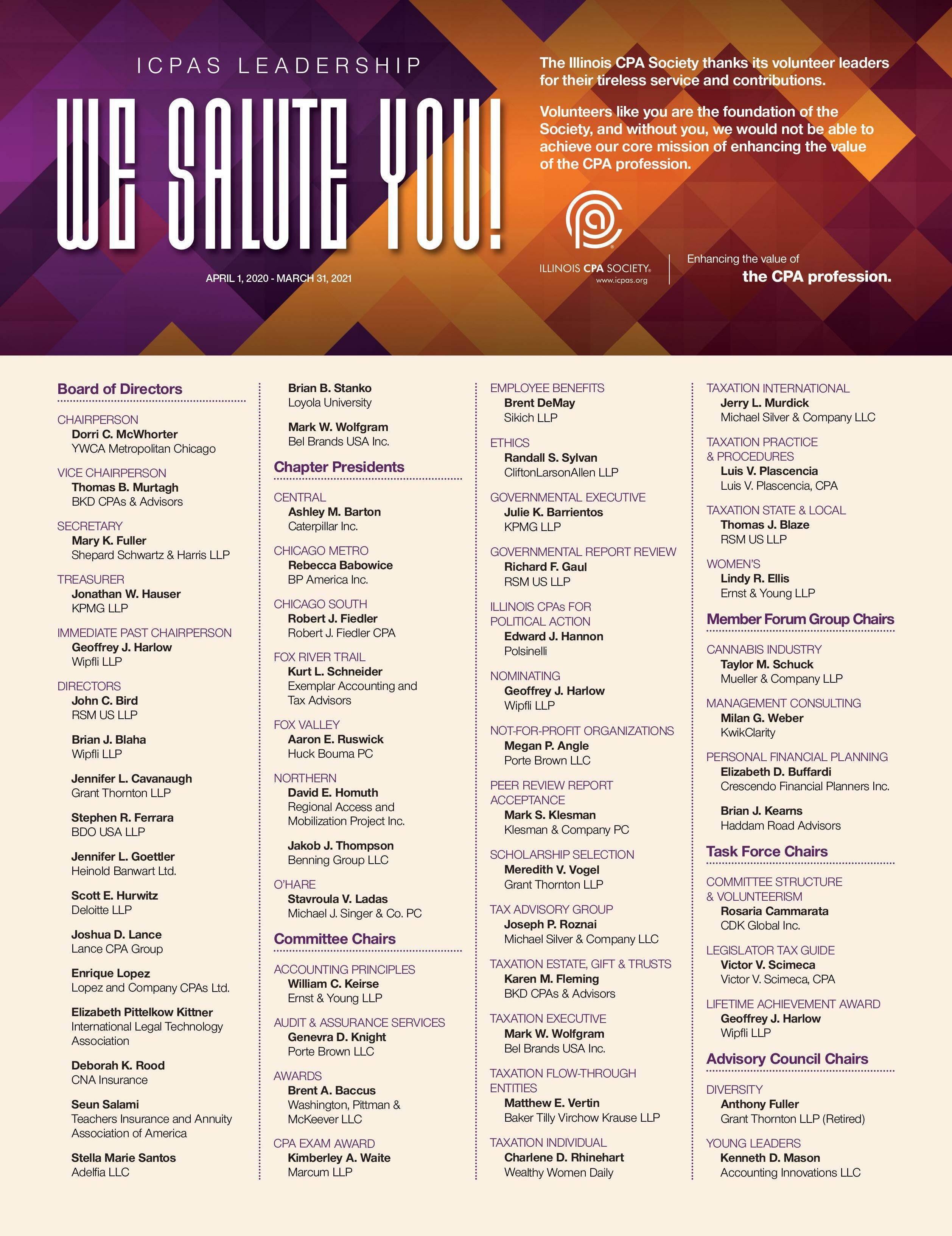
capitolreport
Spring Cleaning in the Statehouse
Inthe 30 years I have been involved with state government, including 12 years as executive assistant attorney general, I have never seen such a broad and bright light cast upon Illinois state government It seems Illinois’ unsavory political reputation is due for a thorough spring cleaning
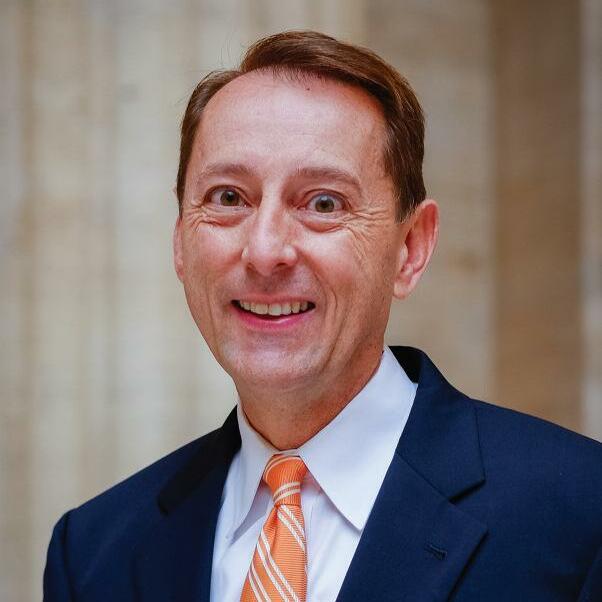
The scrutiny within the statehouse is being driven by multiple structural and cultural changes underway within the Illinois General Assembly Aside from turnover shifting the broader composition of the General Assembly, particularly in the Senate chamber, a new leadership roster of senators in the upper chamber is set to make its mark External forces are also influencing cultural changes in Illinois politics, courtesy of federal law enforcement’s broad probe of state and local officials, which is casting an even bigger spotlight on legislative processes, political campaigns, and lobbyist activities These developments have led Illinois legislators to closely scrutinize internal processes and accompanying state laws, paving the way for vast and welcomed change
STRUCTURAL CHANGES
Earlier this year, former Senate President John Cullerton announced his retirement, vacating both the position and his seat as representative of the sixth Senate district The Senate Democratic majority selected Sen Don Harmon (D-39, Oak Park) as its new chamber leader The Senate president is an influential position, serving not only as the leader and presiding officer of the Senate chamber but also as one of four legislative leaders representing their respective chambers and caucuses on legislative issues and in negotiations with the governor, the Senate Republican leader, and the speaker of the House
Harmon has held various leadership positions during his 17 years in the Senate He is also a licensed attorney who resigned his partnership with a Chicago law firm upon being elected Senate president As the new Senate president, Harmon has already assembled a cadre of confidants to serve on his leadership team while keeping the existing Senate majority leader and assistant majority leader intact And while there was a rotation of committee chairs with the appointment of assistant majority leaders, CPAs should take note that Sen Christina Castro (D-22, Elgin) was appointed as chair of the Senate Revenue Committee, filling the vacancy left by Toi Hutchinson, who resigned to become the cannabis czar
8 | www icpas org/insight
With the spring legislative session well underway, legislators are attempting to clean up Illinois’ politics.
LEGISLATIVE INSIGHTS FROM MARTY GREEN, ESQ , ICPAS VP OF GOVERNMENT RELATIONS @GreenMarty
CULTURAL CHANGES
Widespread high-profile raids and search warrants executed by federal authorities have ensnarled several aldermen, lobbyists, and legislators, casting a bright light on Illinois’ ethical and legal shortcomings and driving the U S attorney for the Northern District of Illinois to announce charges against several notable Illinois politicians who are now awaiting trial These enforcement efforts have further illuminated issues with elected officials serving as registered lobbyists, lobbying other governmental entities and officials on behalf of commercial enterprises and their own business interests This practice previously resulted in a now former state representative being charged with attempting to bribe another legislator in exchange for a legislative vote In another case, a former state senator was charged with accepting bribes in exchange for exercising legislative muscle in favor of red-light cameras, gambling, road paving, and ComEd
What does this all mean? New leadership and changing General Assembly demographics, coupled with the cultural impact of past and pending high-profile charges, have resulted in the Illinois House and Senate closely scrutinizing its internal processes
Last fall, the General Assembly created the bipartisan Senate and House Joint Commission on Ethics and Lobbying Reform and tasked it with drafting a final report on Illinois ethics laws recommendations The current legislative inspector general (LIG) and two previous legislative inspectors general testified before the commission on changing the LIG law to provide more authority to the LIG and for more transparency in the LIG process
This spring, over 94 bills were filed in relation to elected officials and ethics, financial disclosures by elected officials and registered lobbyists, and revolving door prohibitions
The outcome so far? What was once legally and politically acceptable in days long ago is no longer How many people will be enmeshed in the ongoing federal investigation is yet to be seen Clearly, the U S attorney is redefining the legal norms of Illinois politics by the exposure of the investigation and the charges brought thus far U S attorneys are not typically reckless in public corruption cases, nor are they careless in filing specific charges Meaning, when charges are filed, there’s typically a conviction on one or more counts The criminal process will undoubtedly expose the practices of the past and will continue to change political norms and legislative practices of the present We will also see how far the General Assembly is willing to go in policing its own with the passage of meaningful ethics legislation
While fresh faces in the General Assembly could potentially mean that issues previously debated and voted upon may be resurrected, they also bring fresh perspectives to lingering problems Former Senate President Cullerton was always accessible and responsive to the CPA profession, and we are grateful for that, but Senate President Harmon brings a new perspective and a new brand of leadership to the negotiating table This structural change, coupled with the cultural changes that have yet to fully play out, is already changing Illinois’ political dynamic and ethical landscape As you ’ ve probably gathered, my takeaway is that change is good and we should welcome more if it means Illinois’ reputation for dirty politics finally gets cleaned up
Author’s Note: This column includes my personal observations of the evolution of the legislative environment and are not necessarily the views of the Illinois CPA Society

www icpas org/insight | SPRING 2020 9
“All because of you, I am the first in my immediate family to attain a bachelor’s degree. You have lightened my financial burden and the stress of having to work full-time while in school. I feel very appreciative and proud to recognize that there are people out there that are unselfishly giving to help students like me achieve their dreams of becoming CPAs.”
Bryanna Morris
$110,000
Sikich LLP
$70,000
Dempsey J. Travis Foundation
$20,000 - $25,000
Illinois CPA Society
PricewaterhouseCoopers LLP
Patricia Rosenberg
$10,000 - $15,000
Crowe LLP
Hyatt Hotels Corporation
Joan Moore
Belverd Needles Jr. & Marian Powers
$2,500 - $5,000
Alverin M. Cornell Foundation
Follett Corporation
Kenneth & Jacqueline Hull
ICPAS O’Hare Chapter
ICPAS Women’s Committee
Dave & Darlene Landsittel
Gary Neubauer
Catherine Villinski
Wipfli Foundation Inc.
$1,000 - $2,499
AMD Family Fund
Maria Fides Balita
Howard Blumstein
Martrice Caldwell
Rose Cammarata
Jennifer Cavanaugh
CDK Global Inc.
Cameron Clark
CNA Foundation
Jan & Wayne Ebersberger
FOR PAVING THE WAY FOR TOMORROW’S CPAs
The CPA Endowment Fund of Illinois, the charitable partner of the Illinois CPA Society, graciously thanks our generous donors for their contributions and pledges throughout the past year.
These individuals and organizations help make a significant, life-changing impact on the lives of diverse and deserving future CPAs across the state.
HIGHLIGHTS:
$215K awarded 200 scholarships

1,135 donors
$500 - $999
John Bird
Therese Bobek
Rebekuh Eley
Lindy Ellis
Arthur Farber
Mark Glochowsky
Lee Gould
Geoffrey & Virginia Harlow
Sheldon Holzman
John E. & Jeanne T. Hughes Foundation
Scott Hurwitz & Kelly Austin
ICPAS Young Professional’s Group
Kenton Klaus
Joseph Kosinski
Dorri McWhorter
Sara Mikuta
Miller Cooper & Company Ltd.
Elizabeth Murphy
Beth Pagnotta
Floyd Perkins
Melody Ragan
Kimberly Rice
Jennifer Roan
Leilani Rodrigo
Michael Rodriguez
Deborah Rood
Seun Salami
Stella Marie Santos
J. Bradley Sargent
Todd Shapiro
Elizabeth Sloan
Duane Suits
Myra Swick
Richard & Nancy Thompson
Kimberley Waite
Jeffery Watson
Lawrence & Nancy Wojcik
Adriane Wong
Donna & Phillip Zarcone
Jennifer Cataldo Walters
Bill & Betsy Cook
Deloitte LLP
Gary Fish
Henry & Sandra Gentry
Mardel Graffy
Sharon Gregor
Lisa Hanlon
Edward Hannon
Lisa Hartkopf
Margaret Hickey
Joshua Lance
Miller Family Fund
Thomas Murtagh
Jason Parish
Gilda Priebe
John Rogers
Ronald Sonenthal
Meredith Vogel
$250 - $499
Anonymous (2)
Brent Baccus
Joseph Bigane III
Daniel Cadigan
Jennifer Carney
Harvey Coustan
Steve Ferrara
Anthony Fuller
Mary Fuller
Robert Giblichman
Lawrence Gill
Christina Golsch
Bill Graf
Gary & Carol Hart
Michael Hartley
Jonathan Hauser
Margreatha Hein
HMB Legal Counsel
Krista Kapsa
Wendy Kelly
Jeff Krol
Thomas Luken
Rita McConville
Elizabeth Pittelkow Kittner
Kenneth Posner
Roy Raemer
Walter Rein
Elizabeth Roghair
Kathy Scherer
Michael Singer
Claire Stevens
Andrea Urban
Lise Valentine
Mike & Kathy Wenzel
Richard Ziegler
$100 - $249
Anonymous (6)
Sheldon Abrams
Brian Amoroso
Michael Amoroso
Brian Blaha
Basil Booton
James Brennan
M. David Cain
Michelle Carrothers
Margaret Cartier
Nancy Cash
Jerry Catalano
Bridget Coleman
Arlene & David DeMotte
James Dolinar
Melody Driver
Amy Dybowski
Sarah Ference
Sharon Ferrin
James Forhan
Zachary Fortsch
Sharon Frydman
Fred Fugate
Kathy Garlow
Gary Genenbacher
Robert Gibson
Terry & Janet Godbold
Jennifer Goettler
Tricia Gorsky Kozlowski
Robert Grecco
GT Mechanical Inc.
Bernard Hicks
Russell Holmgren
Kathy Larson Horton
Deitra Jackson
JSG Financial Services Inc.
John Kaiser Jr.
David Kalet
Harry Kramer
Thomas Kuchta
Leynette Kuniej
Kathleen Lakowski
Margaret Lawlis
Larry Lonis
Steve & Donna Loraine
Glinda LoVerde
President’s Pavers (4.1.19 - 3.15.20)
Diane Lystlund
Robert Maas
Michael Maffei
Laura Maniola
Carlton Marcyan
Randy Markowitz
Joseph McDonnell
Terry Michaels
David Murphy
Kenneth & Kathleen Naatz
Ijeoma Nwabara
William O’Malley
William O’Neill
Jenni Perko
Charles Phillips
Ernest Potter
James Quaid
Daniel Rahill
Joan Rockey
Michael Santay
Victoria Schmuker
Jennifer Schultz
Brian Severns
Richard Shapiro
Christine Smith
Laurence Sophian
Warren Stippich
Michael Tadla
Jerry Turner
James Vourvoulias
Nicholas Vourvoulias
Julie Vuotto
Erin Wharton
Jay Wilensky
Jessica Winston
Mark Wolfgram
Carl Woodward
Kevin Wydra
Doyoung Yong
Kenneth Yu
Julie Zielke
Anthony Zordan
UP TO $99
Anonymous (10)
AbaCountax CPA Group Ltd.
Judith Aburmishan
Craig Acheson
Sandra Adam
Cheryl Aduana
Keshav Agrawal
Gary Agrest
Robert Aguada
Naveed Ahmed
Rao Akella
Jude Alagna
Omar Alaskari
Jon Aldrich
Michael Aleckson
Peter Aleszczyk
Abdullah Alhinai
Carl Allegretti
Alonzo Allen
Angela Allen
Alan Allphin
Paul Alpern
Patricia Alvino
Amazon Smile Foundation
Robert Amend
Daniel Ammentorp
Nikolaos Analitis
Jane Anderson
Nancy Anderson
Susan Anderson
Steven Andes
Ewa Anikiej
Gus Antonopoulos
Timothy Antos
John Apuzzo
Susan Arndt
Steven Aronson
Idayatu Atoe
Richard Ave Maria
Owen Bailitz
David Balderson
Mariah Baltzell
Dana Bangert
Subir Banik
Michael Bansley
Wayne Barbier
Karl Barnes
Roy Barnes
Amarinder Bartkoske
Jens Bauml
Howard Bayer
Charles Baygood
Dennis Beard
Anne Beason
Lori Beeler
John Belcik
Bruce Bell
Kristen Bellendir
Bashir Bello
Robert Ben
Benchmark Aspen & Associates Ltd.
John Berg
Dana Berglind
David Bergman
Howard Bernstein
Kenneth Bertrand
Rona Bezman
James Biegel
Lawrence Bielawski
George Bilek
Lydia Bilyeu
Brian Bird
Jess Birtcher
Jonathan Blake
Carla Blanchard
David Blum
Christopher Boes
Sarah Ann Bohnsack
Tamara Bokur
John Boncuore
Harry Bond
Irma Bondi
Zachary Bondi
Linda Bonelli
Carol Borecky
David Bos
Gary Bowen
Mary Bowman
Bruce Breitweiser
Thomas Brescia
Kristy Britt
Margaret Broderick
Barbara Brown
Dorothy Brown
John Brown
Robert Brown
Terrence Brown
William Bruno
Thomas Brya
Joseph Bryk
James Bunegar
Teresa Burczak
Erin Burke
Donald Bushen
Nicholas Caccamo
Allen Callender
Marcello Camoletto
LeRoy Carlson
Michael Carney
Thomas Carroll
Patrick Carter
Joseph Cascio
Carole Cederstrom
Catherine Chan
Vilma Chan
Melissa Chankin
Harpreet Chawla
Sinde Chekete
Chiung-Yu Chen
Hui Chen
Honglam Cheng
Scott Cheshareck
Nicholas Chibucos
Chiu-Yeung Chow
Marc Chudy
David Ciasto
Michael Ciesemier
Colleen Clark
John Clark
Susan Clarke
Ayala Clinkman
D. Close
Phyllis Cochran
Katherine Coddington
Alan Cohen
Neil Cohen
Jay Colbert
Kevin Conarchy
Bret Conklin
Christopher Conneely
Margaret Conneely
Thomas Connolly
John Conway
Russell Cook
Sarah Cook
Joy Coombes
Brian Corcoran
Ronald Cornell
Alan Cornue
Trisha Correa
Louis Cosentine
Ann Cotter
Melissa Coverdale
Daniel Craig
Marcia Craig
Timothy Crandall
Kenneth Creech
Kevin Crumly
James Cunningham
Thomas Curatolo
Kevin Currid
Edwin Czopek
Mercie Dahlgren
Lin Dai
Jacques Daigle
Christopher D’Andrea
Donald Danner
Mary Dante
Catherine Daubek
Abbie Davidson
Dana Davidson
Grant Davidson
Martha Davidson
Melissa Davidson
Mary Davolt
William Dean
William Debes
Paul DeFiore
Deborah DeHaas
William Del Principe
Alan DeMar
Alicia Derrah
Catherine Derus
Michael Devereux
Pedro Diaz de Leon
James Dickey
Joseph Diehl
Maria Diokno

Toni Diprizio
Stephen Ditman
David Dobson
Narwin Doekhi
Kevin Doherty
Kelley Donlan
Melissa Donoso
Neil Dougherty
Joel Downie
James Doyle
Jadranka Dragisic
Andrew Dreyfuss
Jeremy Dubin
Richard Duffy
Jonathan Dunmore
Daniel Dwyer
John Dyer
William Eagan
Michelle Ebner
Susan Eby
Sheila Edelstein
Russell Effrig
Mary Ann Egizio
Lisa Eichinger
Rolf Eilhauer
Timothy Elafros
Michael Emmert
Eric Ephraim
Michael Ericksen
Robert Eschbach
Natasha Escobedo
Mark Everette
Noreen Fahey
Dan Farrell
Scott Farrell
Pavlo Fedorchuk
Michael Fehlen
Bradley Feitl
Bridget Fergus
Anthony Ferreri
John Fischer
Ralph Fishman
Shari Fitzgerald
Robert Fitzjarrald
Sara Flaherty
Thomas Flavin
Edmund Fleming
Saundra Fleming
Erin Florczak
Jere Fluno
Elizabeth Folk
Vincent Forgione
Linda Forman
Kevin Foster
Irwin Friedman
Joseph Fruchter
David Fuehne
Richard Fugiel
Yasuhiro Fukuzawa
Annette Fulcher
Vivian Funches
Michael Gacek
Vishal Gandhi
Peter Gariepy
Colby Garman
John Gaynor
Nancy Geary
Ronald Geib
Mary Geissler
Kurian George
Frank Gersich
Stanley Gertzman
Mary Gharrity
Tracey Gibbons
Stacy Gilbert
Roxanne Gilbertsen
Thurman Gills
Edward Gin
Timothy Glaude
Thomas Glavin
Margaret Glynn
Wayne Goble
Gene Goldberg
Matthew Golland
Jamie Golombek
Anna Gomez
Solskin Gomez-Krogh
Elva Gonzalez
John Goode
Craig Gordon
Michael Gordon
Jeremy Gottardo
Ryan Goulding
Sarumathi Govindasamy
James Grady
Andrew Graf
Wendy Grano
Leland Graul
Brad Greenberg
Jack Greenberg
Tom Greenway
Steven Grimes
“The magnitude of your support over the past few years is hard to believe, and I am overwhelmed with gratitude for such transformative opportunities. In addition to financial support, you have given me the gift of knowledge and motivation to become a CPA. I have come away with so many new skills and ambitions, and it is because of your generosity that I am equipped with the tools I need to succeed.”
Morayma Barron
Kevin Grisamore
Donald Grossman
Mary Grossman
Raymond Grothaus
Robert Grottke
Helen Guagliardo
Frank Gulik
Jeffrey Gullang
Cameron Gunderson
Oleg Gurevich
William Guska
Ronald Guthoff
Josef Hajek
Harold Hale
Ethel Hall-Langworthy
M. Hamilton
Edward Hanacek
Nazar Hanafi
Georgann Hanna
Laura Hardy
Julia Haried
Effie Harrell
Deborah Harris
Norris Harstad
Patrick Hart
Marvin Haselhorst
Dennis Hawkins
James Heid
Edward Helfers
Timothy Helle
John Hellner
Curtis Helwig
Melinda Henbest
Kristy Hendry
Michael Heneghan
Craig Henry
Susan Henry
Marianne Herff
Dalia Hernandez
John Heshelman
Norman Hester
Andrew Hettermann
Scott Hickam
James Hilgenbrink
James Hill
John Hillenbrand
Frank Hladik
Man Kit Ho
John Hoeksema
Mark Hoffman
Jana Holt
James Holt
Theodore Homewood
David Hooker
Joel Hopkins
John Hopkins
Michael Horst
Shawn Horwitz
David Hough
John Houren
Jonathan Howard
Robert Hriszko
Ding Huang
Joseph Hubbard
Ann Hughes
John Hughes
Patrick Hurley
David Hutchison
“The road I took to becoming a CPA was demanding. I devoted huge amounts of time to studying and passing the exam while completing my master’s degree. This award took a huge weight off my shoulders and gave me a confidence boost. I do not think I could have done it without you.”
Aamir Ibrahim
Nobuo Idesawa
Eileen Iles
Jim Isaacs
Kenneth Iwanicki
Joseph Izen
Andrea Izykowski
Ghassan Jaber
Kenyetta Jackson
James Japczyk
Ronald Jarvis
Ernest Jaseckas
Michael Jefvert
Mark Jewell
Michael Johnson
Paul Julien
Barry Jutovsky
Richard Kaczor
Kaname Kakuma
Kaori Kameya
Peter Kaminsky
Raj Kanal
Satoji Kaneko
Jennie Kang
Bennett Kaplan
Burton Kaplan
Howard Kaplan
Dustin Kapsa
Sharad Kapur
Frank Karall
Marylou Karkow
Robert Karnia
Michael Katsis
Barry Katz
Jerry Kavanagh
Karl Keane
Patrick Kelliher
Stacy Kelly
John Kent
Russell Kessler
Mark Kieffer
Tyler Kiefner
Thomas Kiesler
Chee-Young Kim
Youn Kim
Jeffrey King
Dawn Kink
John Kintner
Hal Kirby
Charles Kirk
Areno Kirkendoll
William Kistner
Yoshikazu Kitamura
Robert Kleczynski
Sara Klein
Diane Klocke
Kevin Klunder
Mark Knapczyk
Thomas Knieps
David Knuth
Ronald Knutson
Hung Ko
Brent Kochel
Alfred Koermer
Jason Komenda
Lester Koryczan
Jennifer Koss
James Kostrewa
Terence Kozicki
Debra Krillenberger
Andrew Krissinger

Elizabeth Kroger
Kevin Kroll
David Krupa
William Kulanda
Susan Kurowski
Deborah Kurtzke
John Kustes
Brandon LaBelle
Maureen Lagan
Ralph Land
Robert Landowski
James Lang
Tina Langston-Andersen
Edward Lannon
Mario LaPlaca
Christopher Larkin
Frank Larocca
Cheryl Laska
Jeffrey Lasky
Paul Lau
James Laubinger
Babatunde Lawal
Jacek Lazarczyk
Valentina Lazarova
Thomas Lechowicz
Daphne Lee
Robert Lee
Robert LeFevre
Laurie Leja
John LeMay
Jeffrey Lemke
William Lemna
Brian Lenihan
David Leonhardt
Debra Lessin
Mark Leveillee
Brian Levin
Jeffrey Levin
Stuart Levin
Julius Lewiel
Grace Li
Peter Liao
Michael Liccar
Juiyuan Lin
Lin Lin
Mayra Linares
Sherryl Lindish
Diane Linne
Caroline Linton
Harry Lipe
Janice Little
Mary Little
Cherry Llave
Norman Lo
Nicholas Lobraco
William Lock
Michael Lockett
Valerie Loftus
Michael LoGiudice
Lori Lorgeree
Quan Ly
Eric Lynch
Paul Lythberg
Laura Mack
Rose Marie Mack
Louis Mago
Cari Main
Dianne Malara
Kenneth Malek
Daniel Maloney
Theodore Mandigo
Ashley Manestar
Catherine Manning
Tammy Manship
Kristin Marano
Norman Mareci
Jennifer Mark
Andrew Markiewicz
Catherine Marks
Dandan Martello
Joseph Martin
George Martinez
Sarah Martino
Paul Martynowski
Margaret Masier
Anthony Massaro
Benjamin Mast
Thomas Masterson
Curt Mastio
Robert Masuga
Keiko Matsui
Hideki Matsumoto
Alan Maty
Joan Mazurek
Dale McCarrell
Patrick McCarthy
Timothy McCarty
Steven McCoin
Andrew McCormick
Betty McCormick
Mark McDonnell
James McEnerney
Kyle McGinnis
Terence McGrath
David McKeand
Edward McKenna
Laura McLeman
Thomas McNally
William McNulty
James McPhedran
Helen Meagher-Simmons
Timothy Medema
Charles Meeder
Neal Mehlman
John Meister
Tim Melevin
Leonard Metzl
Eugene Midlock
Anne Mieleszuk
Terence Mieling
Nichole Miksa
Leonard Miller
Mary Miller
Randall Miller
Lori Milosevich
Gary Mingle
Dan Mirjanich
Albert Mitchell
James Mitchell
Deborah Mitrenga
Matt Mitzen
Ericka Mixon
Taizo Mizusawa
Lawrence Mocadlo
Ilaria Mocciaro
Megan Mocogni
David Moes
Jack Monco
Tzvi Montrose
Cynthia Moody
Donna Moore
Henry Moore
Jodi Morady
L. Moravy
Karla Morgan
Stephanie Morgan
Richard Morris
Jim Motley
Gregory Mudd
Christine Mueller
Daniel Mueller
Jacob Mueller
Carmen Mugnolo
Maureen Mukai
Thomas Mula
Jessica Murphy
Craig Myers
John Myers
Michael Nadler
Edward Nadler
Alan Nadolna
Kari Natale
Chandanasseri Natarajan
Michael Nathanson
John Naughton
David Navarro
John Navetta
Lawrence Neal
Leonardus Neggers
Roger Nelson
Julie Nemmer
Brad Neuman
Carole Newmyer
Thu Nguyen
Robin Nimmo
Christine Nolan
Genna Notareschi
Robert O’Brien
William O’Brien
Annette O’Connor
Michael O’Connor
Patrick O’Connor
Edward Odmark
Phil Oertli
Joseph Olsen
Karen Olson
Akin Omotosho
James O’Neill
Suet Ching Ong
Kirk Openchowski
Gerard Oprins
Daniel Ostrowski
David Paczak
Robert Palasz
Andrew Palko
Louis Panoutsos
Susan Panzer
Heather Paquette
Donald Parker
Rob Pasquesi
Joanne Passmore
Amy Patton
Whitey Patton
Lorraine Pattullo Banks
Richard Paul
David Pavela
Ann Pelant
Jeannine Pellettiere
Linda Pellini
Linda Perri
Barrett Peterson
Carla Peterson
Kurt Peterson
Simon Petravick
Ryan Petrey
Benjamin Pettie
Anna Pettyjohn
John Pezzullo
Marianne Phelan
Dana Phillips
Pamela Piarowski
Andrew Piasecki
John Pierpoint
Paul Pierson
Samuel Pincich
William Piotrowski
Terry Pitcher
William Pittman
Krista Piwonka
Anna Plewa
Steven Poe
Leanne Pokorski
Peter Ponzio
Mark Porst
David Post
Richard Powell
Jeanne Poynton
Lawrence Prazak
Ronald Pressler
Kathryn Preston
David Prill
SanDee Priser
John Pritchard
Clyde Proctor
Garry Prokop
Steve Ptasinski
Sheridan Pulley
Daniel Kozlak, CPA
Sandra Pundmann
Kyle Putnam
Richard Putz
Patricia Quinlan
Kelley Quinn
James Raaf
Julie Randall
Blake Rasing
Donna Rebeck
John Reece
Michael Reeder
Michael Regan
Brian Registe
Arnold Reingold
Howard Renner
Ariste Reno
Hilda Renteria
Flora Reznik
Richard Rice
R. Richardson
Catherine Riddick
Rochelle Riffer
Frank Ring
Michelle Ringold
Robert Ripp
Sandra Ritter
Joseph Rivkin
Richard Rizzo
Elliott Robbins
James Roche
Fay Rofalikos
Nadine Roggeman
Barry Roman
Susan Romero
Dennis Ronowski
Kristine Ross
Martin Ross
Nancy Ross
Kate Rossi
Linda Rossi
Mark Rouck
Anna Rudawski
Robert Rush
Aaron Ruswick
Maurice Sabath
Imran Safvi
Clara Sage
Michael Saltzman
Alan Sanchez
Dan Sanchez
Bill Sanders
David Saner
Catherine Santoro
Everett Sather
Laurie Sauer
Marvin Schaar
Karen Schaefer
Margaret Schaefer
Phillip Schaefer
David Schafer
Michael Scharf
Michelle Scheffki
Robert Scheuermann
William Schirmang
Laurie Schmidgall
Michael Schneider
Daniel Schober
Nathan Schommer
Mary Schueren
Bryan Schulmeister
Richard Schultz
Florian Seidel
Chiharu Seike
Smajil Selimagic
Dominic Serpico
Craig Shaffer
David Shamsi
Michael Shapiro
Andrew Sharp
Mark Shaw
Becky Sheehan
Justin Shelman
James Sherman
Mustafa Sherwani
Walter Shriner
Barbara Siegel
Marvin Siegel
Steven Simons
Kui-Chong Sin-Fu-Wing
Rosemarie Sison
Joseph Skibinski
Tara Skole
Stephen Slaber
Andrea Smith
Andrew Smith
Dayton Smith
Joel Smith
Norris Smith
Beth Snider
Myron Solomon
Frank Sommario
Jeffrey Sorenson
Paula Sorrentino
Diane Sotiros
Robert Soule
Samantha Spalding Davis
Stephen Spanola
Joy Spencer
Joseph Spokas
Roy Sroka
David Stafford
Daniel Stanovich
Glenn Stears
James Stephenson
Christina Stevens
Elisa Stevens
Lee Stiles
Stephen Stockman
Jeff Stojak
Harold Sullivan
Patrick Sullivan
Peter Sullivan
Yamei Sun
Stephen Sutton
Jason Svestka
Steven Swan
Barry Swartz
Steven Swidler
Kimberley Szalkus
David Szerlag
Yuji Tachibana
Lamees Taha
James Taibleson
Donna Tam-Perez
Daniel Tanner
Anthony Testolin
Kenneth Thomalla
Desiree Thompson
Chengmei Tian
Benjamin Timmermann
Dale Timmermann
Christie Tipton
Frank Tlusty
Vicki Tlusty
Ramona Marijo Tomas
Stephen Tomei
Jacob Trepelkin
John Tribbey
Johannes Tromp
Paul Trotter
George Tsitouras
Kasumi Tsujimura
Our Students Count on You
Every year, more qualified candidates and deserving future CPAs apply for our scholarships and programs than we can support. You can help us close the gap.


Your generous financial contributions and volunteered time and expertise are crucial to the sustainability and reach of our programs including:
• Academic Scholarships
• CPA Exam Awards
• Student Ambassador Program
• Mary T. Washington Wylie Internship Preparation Program
• Virtual Internship/Job Fair
Get involved today to help ensure future CPAs can realize your same success. Together, we can make a difference.
Deborah Turner McKissic
Mihaela Tyler
Melissa Ulatowski
Stephanie Usalis
Mark Valdick
Mathew Vanderkloot
John Vant Hoff
Patricia Vardalos
Downey Varey
Daniel Vargo
James Vargo
Valerie Varney
Ryan Vaughan
John Verchota
Thomas Vicario
Karen Villaflor
William Vlazny
Gregory Voorhees
Raymond Voros
John Vosicky
Mark Vottero
Anthony Waelter
Jacqueline Wagner
Diana Walker
John Walsh
Frederick Walz
Wei Wang
Pamela Wankel
Marie Ward
Michiko Wargo
Bruce Warkentin
Matthew Warren
James Watson
Steven Watts
Jeffrey Webb
Volha Weber
Harald Weiler
Arvin Weindruch
Lesley Weinert McDonnell
Joanne Weiss
Matthew Welch
James Welge
John Wellhausen
Nicole Wells
Robert Westberg
Maureen Wheeler
Glen Wherfel
James White
Nancy Wilke
Richard Wilkens
James Wilkins
Kelly Willett
Jennifer Williams
James Winikates
Sharon Wiorek
Christopher Wojcicki
Agnieszka Wojtowicz
Charles Wolf
David Wolfe
John Wonak
Hiu Ling Wong
Mary Wood
Gregg Woodruff
Carol Wrobel
Steven Yang
Suzanne Yang
Cristy Young
Larry Yu
Carl Yudell
Craig Yuen
Brian Zabel
Dario Zanichelli
Junichi Zenimoto
Faye Zhang
Manshu Zhang
Mark Ziegenhorn
Robert Ziemann
Kristine Zitt
Roger Zmrhal
Eric Zurawski
Kenneth Zurek
Donors with a multi-year pledge are recognized for the full amount of their pledge in the first year and for their pledge installment amount paid in the remaining years of the pledge. Every attempt was made to acknowledge all donors who have given during this period. If you see a discrepancy, please call 312.517.7656.
Donate at www.icpas.org/annualfund
The Building Blocks of Blockchain
Accounting and finance professionals must have a fundamental knowledge of this technology moving forward Here’s why
BY BRIDGET McCREA
There’sa lot of buzz in the business world about blockchain, cryptocurrencies, and fintech (financial technology) for the future Emerging technologies that go beyond what we use in our day-today lives can be difficult to envision and even harder to apply in practice So, here’s the bottom line: “At this point, CPAs and financial professionals should focus on the basics and simply getting to know these concepts,” says Girish Ramachandra, technology industry leader with Wipfli LLP in Chicago
BLOCKCHAIN BASICS
A blockchain is a “shared, immutable ledger that facilitates the process of recording transactions and tracking assets in a business network,” according to IBM’s “Blockchain for Dummies ” The assets can be tangible (i e , a property, vehicle, cash, or land) or intangible (intellectual property, patents, copyrights, or branding) “Virtually anything of value can be tracked and traded on a blockchain network, reducing risk and cutting costs for all involved,” IBM states
At its simplest, a blockchain is a digital file where data is stored Through an open ledger, blockchains contain data that’s distributed across various computers This differs from traditional ledgers,

where information is stored in a single database and then in most cases processed by a central figure (e g , a person, organization, or government)
Because a blockchain involves multiple users, computers, and databases, it creates a multilayered transactional environment that’s theoretically more secure since the contents are immutable, accessible, and verified by user consensus
Within the blockchain ecosystem, the cryptocurrency Bitcoin is the most mainstream example of the technology in action Blockchain is the foundational technology that facilitates cryptocurrency transactions, which are reported and archived to shared public ledgers that verify each and every transaction
TAXING MATTERS
For many CPAs, their first foray into blockchain technology may be spurred by their clients’ tax returns Form 1040, Schedule 1, includes the question: “At any time during 2019, did you receive, sell, send, exchange, or otherwise acquire any financial interest in any virtual currency?”
14 | www icpas org/insight T E C H N O L O G Y
While most cryptocurrencies have fallen from their peak valuations, trading and transactions involving them continue to increase and become more accessible and commonplace, meaning more taxpayers will be responding “ yes ” to that question
Andrew Gordon, CPA, lawyer and director of The Blockchain Institute, says accountants should, in the best interest of their clients, understand the rules on reporting such transactions
“Something as simple as a client using Bitcoin to buy a cup of coffee now has to be reported,” Gordon says
INDUSTRY INNOVATION
On the other end of the blockchain spectrum, large corporations are using it for supply chain innovation For example, Walmart began using blockchain to track organic food products from farm to fork Walmart’s U S division implemented the IBM Food Trust blockchain for tracking leafy greens following 2018’s romaine lettuce contamination problems and has since begun using it to track shrimp exports from Indian farmers in Andhra Pradesh to select Sam’s Club locations in the U S In June 2019, Walmart China announced a partnership with PwC, blockchain firm VeChain, and a local trade association and beef producer to create the Walmart China Blockchain Traceability Platform, which is focused on ensuring food supply chain safety
“Conceptually, blockchain works really well in these situations,” Ramachandra says Shoppers can use their mobile phones to scan produce on the shelves, track it back to the source and region, trace shipping, and even get product inspection reports
That said, Ramachandra acknowledges the project’s success comes from Walmart’s entire supply chain ecosystem agreeing to use that system “It will take time for smaller organizations to roll out such initiatives and for everyone to realize the benefits, what the efficiencies are, and what transformations they can make using blockchain,” Ramachandra says
BANKING ON BLOCKCHAIN
The opportunities to apply blockchain in finance and accounting are plentiful, but audit is one area especially ripe for a technology overhaul, says Kirk Phillips of The Bitcoin CPA™, a Certified Bitcoin Professional and AICPA instructor

“The audit process is going to become more technological in nature rather than teams of auditors doing manual tasks,” Phillips predicts, pointing to Armanino’s TrustExplorer product as proof of concept TrustExplorer provides the first-ever real-time audit report, an ACT-205 examination opinion on the reserves of TrustToken’s stablecoin TrueUSD, a cryptocurrency According to California-based accounting and business consulting firm Armanino, TrustExplorer offers transparency to stablecoin holders regarding circulating supply of tokens and escrowed assets backing those tokens In other words, the web application verifies that TrustToken’s U S dollar reserves are equal to or greater than the TrueUSD tokens issued
“Prior to this service, TrustToken would hire an auditor to do a traditional engagement, which happened once every 30 days,” Phillips explains “Now, the work is automated and occurs in ‘block time’ once every 15 seconds, which is the average time a block is added to the Ethereum blockchain ”
WHAT’S AHEAD?
“There are many different future opportunities for blockchain in finance and accounting,” Gordon says He sees more and more companies accepting cryptocurrencies and making digital
payments because these transactions can be settled within minutes (versus days or weeks) and involve multiple verification checkpoints along the way, making them both secure and reliable He also envisions a time soon when tax returns are prepared using data from blockchains and the technology is used to update and reconcile financial statements as transactions take place
“Accounting is all about recording data, looking at the past data, reconciling the data, and reporting on it,” Ramachandra says “If you look at blockchain from that perspective, I would say blockchain is an accounting technology CPAs should focus on what blockchain is, how it works, and why it’s important Blockchain data is basically preaudited that’s a significant difference from traditional approaches ”
As the world continues to shift from physical to digital documents, dollars, data, and more, Phillips says the accounting and finance fields will be pulled right along with it Stablecoins like TrueUSD, for example, represent a new class of cryptocurrencies backed by a reserve asset and centered on offering price stability “Stablecoins are basically a digitized version of the U S dollar, and there’s a whole world emerging around this concept,” Phillips explains “This is just one of several catalysts that promise to bridge the old world and the new world of money ”
It’s not much different than what happened when innovations like the internet, email, and smartphones came on the scene “At first, there’s always some confusion,” Phillips says, “but eventually it just becomes something we all use It will be the same with blockchain ”
MEMBER BENEFIT
CPE TRACKER
Keep all your CPE credits in one or g anized and easy to manag e place.
The CPE Tracker allows you to see a list of all completed CPE programs from ICPAS and those that you’ve com pleted from any third-par ty (non-ICPAS) provider s
www icpas org/insight | SPRING 2020 15
EDUCATION | NFORMATION | ADVOCACY | CONNECT ONS Get s t ated today at www.icpas.org/CPEtr acker
The Bots Are Coming
Getting robotic process automation right should be CPA firms’ future focus.
BY LISA WILDER
Doesthe possibility of robots in the workforce send chills down your spine? Whether you fear a robot uprising, or you ’ re just scared a robot might take your job, robotic process automation (RPA) can be a daunting prospect But the reality is that embracing RPA is unlikely to result in a scene from “I, Robot ”
In your office, the tasks most likely to be automated are boring chores, like payments processing or account reconciliations things you’ll likely be thrilled to hand off to an artificial mind The bottom line on bots is that RPA offers the tantalizing possibility of saving money and time while allowing workers to focus on more challenging and strategic tasks that require human skill and nuanced decision-making
At the most basic level, RPA is what it sounds like: a way to automate routine and repetitive work using software bots So, it should come as no surprise this technology is gaining prominence and importance in the business world The global market for automation technologies like RPA is growing by 20 percent a year and is estimated to reach $5 billion by 2024, according to Deloitte’s 2019 report, “Automation with Intelligence ” What’s more, Gartner’s 2019
paper, “Predicts 2020,” estimates organizations will be able to lower operational costs by 30 percent by 2023 by combining automation techniques with redesigned operational and human processes
With its potential for increased efficiencies, what could RPA mean for you? Chris Denver, CPA, MBA, national assurance practice director at International Financial Group, says it’s worthwhile to begin with discussing “the elephant in the room ” what bots could mean for hiring and recruitment of future accounting talent
“Can a bot replace a public accounting firm partner who has to exercise a lot of judgment in determining whether he or she believes a client’s financials are free of material misstatement? No And the technology will never get to that point,” says Denver, whose firm consults on and designs tailored RPA solutions for a range of financial clients “But could it mean the next hiring class doesn’t have to be as large? Possibly ”
His point: Future accounting professionals should consider building RPA skills, and current CPA firm leaders shouldn’t wait for new graduates to tell them about RPA Here’s what decision-makers need to know now:

16 | www icpas org/insight
A R T I F I C I A L I N T E L L I G E N C E
WHAT’S A BOT?
Maybe the better question is where’s a bot? You’ve probably already encountered bot software as a consumer or possibly when studying the customer-facing functions of various clients The travel industry, for instance, has become a major user of so-called chatbots, which essentially execute predetermined conversations with customers to make reservations or solve customer service problems
For accounting firms, a bot application can be as simple as directing a potential client to the right person to contact at the firm, or to perform data capture and reconciliation replacing human taskwork that might take staff hours or days to do What a bot isn’t is a solution for ambiguous tasks or functions requiring complicated judgments and decisions requiring weigh-in and review
WHAT CAN BOTS DO?
According to Jeff Aldridge, intelligent automation leader at EY, automation could help many organizations reach their long-term operational goals Leaders should approach RPA with a specific outcome they hope to achieve “What is your purpose in implementing automation? Is it efficiency and cutting costs or reducing head count?” Aldridge asks “Or could it free up an organization’s best people to do more value-added tasks?”
Generally speaking, bots can automate repetitive, static processes and functions that do not require human judgment With this in mind, large firms might consider an RPA approach among not just one but all departments burdened by repetitious tasks even the smallest firms can find value in automating at least some repeat tasks Why’s that?
Denver notes that as accounting firms and other professional service providers move toward more fixed-fee arrangements, strategic bot installations can cut costs in ways that allow them to focus on potentially more lucrative, high-value services
WHERE TO START?
Aldridge warns that even the simplest bots require customization based on the technology ecosystem they’re placed in “Each organization has unique processes and supporting systems that such bots need to access, ” he explains, which means your first step in the process should be designating “ a strong C-suite champion” who leads a discussion about the purpose and goals of automation overall before leaping into buying or building bots “It’s important to begin with a broader business case to justify the initial infrastructure investment and to see how such technology may be leveraged across the organization,” he adds
HOW MANY BOTS?
According to Aldridge, an average bot can accomplish up to three discrete automations intended to be run separately, which is why large organizations may run hundreds of bots “RPA works 24/7,” Aldridge explains, “but the one thing they can’t do is two things at once ”
Because of that, task scheduling is as critical as bot maintenance Denver adds that bot software can be very “fragile,” as the smallest change in the application’s ecosystem can slow or completely derail its functionality One example: If a bot pulls in information from a website that has recently been redesigned, even a seemingly small tweak like a form field name change could stop a bot cold Denver stresses that bot function needs to be constantly monitored not just for accuracy but for any change in their interaction with other
software Simply put, when tasks change, bots need to change “There needs to be a shelf life built into bots,” Denver cautions
HOW MUCH DO BOTS COST?
Since bots need to be designed for the software environment they’re living in, they require customization EY, which in recent years has applied RPA within its own infrastructure, offers a rough average estimate of what bot startup costs: A bot that performs up-to-three discrete functions requires a hardware investment (mostly servers) of around $20,000, a software investment of approximately $15,000, and development costs nearing $50,000 That said, Denver estimates some bots can be designed for considerably less or more based on purpose and needs While current technology and budgets often require a focus on simpler tasks, that will also change in the future The basic equation to justify the cost of investing in bots begins with accounting for staff time and compensation saved
WHERE TO LEARN?
Reading about artificial intelligence and RPA technologies and attending seminars helps, but it also pays to watch RPA development among peers and clients Sometimes the best learning is hands-on Aldridge points to Gartner statistics indicating 60 percent of companies with more than $1 billion in revenues have already started their RPA journey, adding that by 2022, it will be close to 85 percent
“One of my largest clients right now is a $20 billion manufacturer who is trying to be the most automated finance organization in the world by taking 50 percent of its current finance (human labor) hours out through automation,” Aldridge notes Meanwhile, EY has installed some 2,000 bots throughout its global operation, 700 of which are aimed at making internal operational tasks more efficient, including in finance and HR, making EY one of the largest users of RPA in the world, according to Aldridge
In other words, some of your own clients may be able to offer deep insight into bot technology
WHAT’S NEXT?
Gartner describes the current state of RPA as “toolboxes where customers are expected to build their own automation ” But rather than focusing on the construction, Gartner suggests that organizations spend more time thinking about goals because technology will change faster than long-term targets
In fact, Denver says that we ’ re not far away from a time when bots will become so sophisticated that they’ll be able to learn how to improve their performance and functionality That means the future leaders of the accounting industry don’t necessarily need to become computer engineers, but they’ll need to better understand technological evolution and how it can improve their performance
“One of the things that public accounting firms really ought to be looking for now are graduates with RPA skills at some level,” Denver suggests “A good cultural fit is most important in hiring, but it’s also going to be important to recruit professionals who have a greater comfort with technology and possibly some hands-on skills ” Further, Aldridge recommends recruiters focus on new graduates who arrive with business strategy and decision support skills that bots don’t yet possess and let bots do the rest
After all, who doesn’t want a new, quiet coworker who does all the boring drudge work? So, hand over your mind-numbing number crunching and paperwork and welcome the bots to work
www icpas org/insight | SPRING 2020 17
ON BECOMING FUTURE READY

Upskilling is key for young accounting and finance professionals aiming to drive business success and future-proof their positions as the most trusted and strategic business advisors.
BY CLARE FITZGERALD
18 | www icpas org/insight

www icpas org/insight | SPRING 2020 19
According to the 2019 “Closing the Skills Gap” report from Wiley Education Services and Future Workplace, 64 percent of HR leaders surveyed say there’s a skills gap in their company up 12 percent from their 2018 findings
Given today’s pace of change, companies have no choice but to invest heavily and quickly in developing their workforces for the future and the accounting and finance profession is no exception In just one example, PwC recently announced a $3 billion investment to upskill its global workforce of 275,000 employees over the next three to four years
As organizations large and small across industries strategize to prepare their talent for a tech takeover, young accounting and finance professionals must make concerted efforts to capitalize on every opportunity to develop competencies and mindsets that will make them coveted resources and future leaders in an evolving business world That means prioritizing upskilling in key businesscritical areas, according to the accounting and finance leaders interviewed for this feature, which they say will help young professionals stand out as high performers and evolve into the new faces of the profession
The Technology Connection
Advancing and constantly changing technology is one of the main drivers of skills gaps In Robert Half ’ s 2019 “Future of Work: Adapting to Technological Change” report, 47 percent of more than 1,200 U S managers surveyed said they expect the rise of technological advancements such as artificial intelligence and robotics in the workplace will require their team members to learn new skills
“Every company will need to be a tech company in the future,” predicts Brian Blaha, CPA, growth partner at Wipfli LLP and a director on the Illinois CPA Society’s board of directors “Professionals will need to be familiar with various technologies and understand how technology can enable us to be innovative in how we deliver services and connect with our customers ”
Fellow Illinois CPA Society board member Josh Lance, CPA, CGMA, managing director of Lance CPA Group, agrees that it will be important for accounting and finance professionals to combine technology proficiency with an understanding of how technology can improve the user experience “Whether it’s as simple as video calls or cloud computing, younger professionals need to not only learn how to use technology tools but also how those tools add value for their clients,” he says, pointing out that identifying and enhancing value requires professionals to expand their knowledge beyond the technology they use daily
“Sometimes you can be in a bubble if you ’ re just using the technology at your firm It’s important to know what technology challenges other businesses and your clients are facing,” Lance continues Getting out of the office, talking to other professionals, and attending conferences are a few ways to maintain your awareness of changing technology and how it will affect your interactions with clients
The Strategy of Soft Skills
As automation and other advancing technologies become more widespread, upskilling will extend beyond technology According to Robert Half ’ s study, half of U S employers expect to see increasing demand for soft skills, such as written and verbal communication, collaboration, emotional intelligence, leadership, and creativity According to Blaha, accounting and finance professionals who can combine technology and soft skills with
financial acumen and a business mindset will be in high demand as clients increasingly need CPAs who can help them grow and sustain their businesses
“The CPAs of tomorrow will need to go beyond financial statements and compliance work They’ll be attesting to all sorts of things, and they will be involved in decisions related to supply chain, cyber, business operations, and more all while maintaining the trustworthiness that CPAs are known for,” Blaha stresses “Client surveys tell us they are looking for proactive, forward-looking advisors who can get results ”
Helping clients make good business decisions and understanding what they want is key to client retention, Lance adds: “Clients want help and assistance for the real-time world ”
Expectations are growing on the corporate side, too Corporate finance teams are no longer pencil-pushing reporters of financial results, says Anna Gomez, CFO of the Chicago-based advertising agency Leo Burnett Group: “We play a role at the forefront of the agency We’re involved in operations, corporate strategy, and running the business ”
Succeeding in that expanded role requires finance professionals to have a strong base of technical knowledge to fulfill compliance needs and a collaborative spirit to work with other departments and build a reputation as a trusted and strategic partner “Young finance professionals often mistakenly see the role as churning through back-office work, but they need to learn how to work in a team environment,” Gomez says “It’s not just about individual output ”
Developing a strategic mindset and having a deep knowledge of the business are also crucial to success in tomorrow’s finance world “You need to own the numbers, but you also need to understand how the numbers and metrics drive day-to-day business decisions Understanding the analytics that you ’ re presenting gives you a voice in making those decisions,” Gomez explains
Habitually being part of business conversations and understanding how other departments work helps raise your profile in the organization Leo Burnett’s finance team is involved in rate setting, negotiations, and staffing, and collaborates with the creative and account teams Gomez says some departments used to wonder why finance was in certain meetings they don’t anymore “The organization doesn’t make any decisions without finance now, ” she says “They know the value we bring We earned that seat at the table by being available and demonstrating the importance of finance’s point of view ”
Going Beyond Accounting
Developing the ability to provide strategic analysis and insight often means breaking out of the stereotypical CPA mindset
“CPAs can get stuck in cyclical patterns and habits The best way to break out of that is to constantly ask why things are done certain ways, ” Lance says, adding that professionals at all levels can and should cultivate an inquisitive mindset “Asking if there is a better way to accomplish a goal can help you avoid the ‘this is how we always do it’ mentality ”
It’s also important to find and build relationships with people who share that curiosity and are open to new ways of doing things Lance encourages young professionals to find fresh ways to expand their networks, such as meeting people for coffee to talk about industry changes and hear different perspectives that you can apply to your own work “Finding and talking to people doing innovative things in the industry, inside or outside your organization,
20 | www icpas org/insight
can help you learn new things and open up greater opportunities for you, ” he says
Successful upskilling ultimately hinges on a commitment to continuous learning “Today’s professionals need to be lifelong learners and they need to invest in self-directed learning,” Blaha says With a wealth of low-cost, easy-access programs through the Illinois CPA Society, other professional organizations, and on the internet, CPAs have no excuse for not expanding their knowledge base
Blaha also encourages younger professionals to follow and build on their natural curiosities “Don’t wait around for someone to tap you on the shoulder or to stumble upon your passions,” he advises “Have the mindset that you can direct your career to things that you are passionate about If you have an interest area, then work on becoming known in that specialty Lean in and earn recognition internally and externally by writing thought leadership pieces and finding other people with common interests Those are the types of activities that get you noticed and can give you access to new opportunities ”
Lance agrees that whether you work in corporate or in public accounting, establishing yourself as a thought leader and change agent helps you stand apart from your peers “You need to take the initiative to investigate how you can be a leader in the industry,” he says, adding that speaking, writing articles, and serving in industry organizations are great ways to share and test your opinions “Putting yourself out there allows you to chart your own path and be part of making and leading change ”
Gomez adds that accounting and finance professionals sometimes need to make an extra effort to get out of their shells and learn the soft skills that will help them develop into tomorrow’s thought leaders “Finance professionals of the future won’t be those who like to just sit at a desk,” she cautions
Organizing Organizational Support
While professionals should own their continual development, employers do their workers and their organizations a disservice when they don’t step up to help To retain top talent and drive business success, employers need to create upskilling opportunities and support the professionals who are committed to continuous learning

In fact, Blaha says firms need to protect those high-performing future leaders from getting poached by other firms “The job market is so competitive, you need to show you are invested in their success, ” he says “Providing robust leadership reviews and additional coaching and educational opportunities can show new hires and existing staff that the organization is committed to helping them acquire new skill sets and navigate change ”
Helping employees learn about new technologies also is important Whether it’s through in-person seminars, online courses, knowledge transfer from consultants and subject matter experts to staff, reimbursement for professional certification costs, or working with a mentor, organizations must provide timely training to stay ahead of the curve
Simply sitting down to a conversation with staff also helps guide upskilling Gomez, for instance, talks to her staff individually about the future of the industry and the professional environment And one of the things she tells them? “The industry has changed so much You need to maintain the technical skills but also learn how to build relationships and develop confidence in your ability to make an impact Learning that early in your career sets you on a successful path ”
www icpas org/insight | SPRING 2020 21
Get Future Ready Join us at the Young Professionals Leadership Conference To learn more, visit www.icpas.org/yplc
22 | www icpas org/insight
Revving Up Recruiting in the New Roaring 20s
Recruiting and retention has historically been a top issue for CPA firms. Here’s a new talent strategy for the next decade.
BY KRISTINE BLENKHORN RODRIGUEZ
www icpas org/insight | SPRING 2020 23
As accounting firms of all sizes take aim at strategic growth in a fresh decade, many are facing a historical challenge finding the right team
“This is the tightest labor market we ’ ve seen in years, ” says Ann Guerra, vice president and metro market manager for Robert Half Finance & Accounting in Chicago “Unemployment is the lowest it has been in 50 years, which is great, but it’s making it much harder to find talent in the marketplace It’s a candidate’s market ”
In a new Robert Half Finance & Accounting survey of CFOs, 93 percent said it’s challenging to find skilled candidates for professional-level positions As a result, respondents said their search could take a month or more to fill staff-level accounting or finance positions and five weeks to hire for management-level roles
Another survey from the firm found nearly six in 10 job seekers (59 percent) have received two or more offers simultaneously when applying for jobs
The takeaway: Many firms are having to get creative to gain a competitive advantage in signing the best and the brightest From expanding the candidates you ’ re considering, to fine-tuning culture, to harnessing the latest tech, here are some ways to build your dream team in a tight labor market
Untapped Talent
Janel O’Connor, chief human resources officer for professional services firm Sikich, has watched the hiring sea change “I entered this profession when you posted an ad in the newspaper, candidates flowed in, and you picked one, ” she explains “We’re so far from that now ”
Firms are increasingly looking at groups they might have traditionally overlooked years ago “In a market like this, you don’t want to beat your head against a brick wall Look for groups that are talented but have not traditionally been as sought after,” encourages Tiffany Dougherty, founder of Ardent Services, who has built her career on recruiting from the military; women ’ s, LGBT, and minority groups; and more
Military Might
“Who wouldn’t want a candidate from a culture where the motto is ‘Be all you can be?’” Dougherty asks “The level of urgency and attention to detail required in the military is a great fit for accounting and finance No one gets through the military by being just okay or skating by, so you ’ re getting a candidate used to giving 100-plus percent ”
Erik Casarez is proof of that mentality A former Green Beret, he and wife Rebecca own ProAdvisor CPA, a Silicon Valley-based accounting firm “A lot of the things I learned in my military career didn’t translate to me becoming a financial analyst at Goldman Sachs But what I lacked there I made up for in leadership skills and life experience, which go far beyond what your average job candidate brings to the table,” Casarez says, adding that his military experience taught him to solve problems using out-of-the-box thinking, which ultimately translated to him and his wife creating an accounting firm that is not dependent on tax season or hourly
billing Both decisions, he says, were made to benefit the firm and its employees, but he wouldn’t have had the courage to forego the traditional model and approach without his military training
Parental Prowess
“Returnships” are on the rise in many firms as leaders recognize the value of workers who have taken time off to care for families or pursue other interests Becky Egan and her husband started their accounting firm in 2005 Having two young children, they’re more than familiar with juggling the demands of home and work, and see the skills used at home as useful at work also
“It started when we had a man come to work for us who had been home raising a child,” Egan says “He was actually a client He was a fantastic employee and it made us realize this was an untapped talent pool for us I mean, who gets the work done better than a working parent? Then we hired another CPA who had been home with her family for a few years It has worked out really well for us ”
While their returning working parents are success stories, Egan cautions that the environment has to be right: “Some large firms are just not flexible enough to make this work Most workers don’t want to jump from being home to corporate hierarchy But here, it works My babies used to come to work with me We’re familyfriendly, and we are happy to employ people who are just trying to make it all work ”
Some organizations might also find fresh talent in hiring candidates who aren’t looking for the traditional 40-hour workweek
“We see variable labor in our future model for sure, ” O’Connor says “The retiree who wants to work part-time Or, a stay-at-home parent who only wants to work certain times of the year–even someone who just wants a client or two All of it works for us, as long as they are qualified candidates with a great work ethic ”
Transitioning Talent
It’s all too easy to hold an unconscious bias against unemployed or transitioning workers, but they’re another group of talent that shouldn’t go overlooked in this market While the reasons workers
24 | www icpas org/insight
depart from their existing career path vary, many people in transition have the potential to fill important roles at the right organization
Jami Phillips, employment consultant at New Directions Career Center, helps place women in transition with companies looking for dedicated workers “We provide holistic programming and career counseling to women who need a leg up, ” Phillips says “Maybe a worker was downsized or stayed home with her kids for a decade Maybe she wants to switch careers later in life Some of our candidates are coming out of prison or have fought addictions We place women with a GED to a Ph D , and everything in between ”
New Directions holds job boot camps, where they walk women through self-exploration and identification of skills and interests, as well as practical skills like resume writing and interview prep
“I’d say we place 10-to-15 percent of our candidates in financial roles, from accounting departments to banks,” Phillips says She admits some firms initially battle skepticism but are glad they took the chance on a candidate when they look back “I have one firm that calls me regularly with their openings, telling me they need another ‘Sarah ’ We placed her years ago, and she has moved up within the company Another woman is graduating in May with a dual degree and already has a job in a large insurance company She got that dual degree, by the way, in just three years while being a single mom of two These women are motivated They want someone to take a chance on them ”
Culture Counts
Firm culture used to be considered a soft issue Not anymore The ability to both attract and retain talent millennials, especially hinges directly on a firm’s commitment to culture According to Glassdoor, culture is a top factor for job seekers today In fact, the company ’ s Mission & Culture 2019 survey shows that American millennials are more likely to value work culture over salary (65 percent)
When candidates are choosing between two excellent jobs, culture is often the deal-breaker Collaboration, diversity, integrity, respect, performance recognition, and coaching rank among the most important culture components across industries and
professions, according to findings from Glassdoor and MIT Sloan Management Review
“More than ever, people are really looking for companies that give back to their communities,” Guerra explains “It goes beyond donating to charities at the holidays It’s working together at a local food bank It’s offering internships to disadvantaged communities People want to feel connected to your mission, and that connection builds rapport within the office ”
That doesn’t mean you can skimp on the other basic elements of a welcoming office culture “You still need to stock the refrigerator, offer work-from-home benefits especially in Chicago where commutes can be 60 minutes or more relax the dress code, etc , ” Guerra says “But getting people to connect to your mission and purpose that’s where you can find the true fit ”
Tapping Technology
As filling key roles becomes more challenging, many organizations are looking to technology to help them hire the best and brightest
O’Connor says Sikich’s hiring leaders are using data analytics to think strategically and identify blind spots For instance, analytics on candidates help the firm see how diverse and inclusive the hiring pool is, which skills are available, and what they may have to provide training on
However, it’s not just about using technology internally Firms can benefit from using technology to market themselves and recruit externally For instance, UK accounting firm My Accountancy Place turned to social media when they needed to recruit a new controller Using a video featuring two of their current controllers, they let their employees do the talking, detailing their positive working experience at the company and giving potential candidates a view into the corporate culture they’d be walking into
“Social media is a must,” Dougherty says “Instagram is the new thing for the next generation of employees I have clients that insist on using LinkedIn because it’s more ‘corporate’ but that’s not where young candidates are at One good Instagram story will get you eyeballs from young talent in a way few other social outlets will ”
Technology is also benefitting retention efforts during a time when Robert Half says 43 percent of professionals plan to look for a new job in the next 12 months O’Connor says Sikich uses technology regularly to take employees’ engagement pulse: “We can break it out by direct manager and key practice area, so we can really pinpoint where people are feeling good and where we have work to do to improve Sometimes that makes for difficult conversations with leaders Sometimes we find someone who is technically excellent but maybe shouldn’t be leading a team But it brings the transparency that fosters trust in our people They know we ’ re on it and we care about their employee experience ”
While there’s no quick fix for the talent troubles the profession has historically faced when candidates have as many choices as they do today, exploring new tools, expanding your potential candidate pool, and building a healthy company culture can rev up your recruiting and retention results in this millennia’s roaring 20s
www icpas org/insight | SPRING 2020 25
BREAKING THROUGH THE GLASS CEILING

How women in accounting and finance can break barriers and become rising powers in the profession.
BY CAROLYN KMET
26 | www icpas org/insight

www icpas org/insight | SPRING 2020 27
In the 1950s, women accounted for less than a third of the American workforce Today, the Bureau of Labor Statistics says that figure is close to 50 percent Thankfully, today’s workforce is much more diverse, but it was a long time coming and there’s still a lot of ground to cover to move more women into the leadership ranks
Within today’s financial services sector, women make up 61 percent of accountants and auditors, 53 percent of financial managers, and 37 percent of financial analysts Unfortunately, that level of participation doesn’t extend further According to a report issued in 2019 by Deloitte, the proportion of women in leadership roles within financial services firms is a mere 22 percent and is projected to reach just 31 percent by 2030 While those numbers arguably represent significant progress, it’s still a long shot from parity
From a lack of role models, to the unconscious biases of business leaders, there are a variety of reasons why women have struggled to climb the corporate ladder It’s time for that to change For any woman who hopes to one day sit in the C-suite, here are some of the challenges you will face and how you can build your executive presence despite them
Illinois CPA Society member Julia Haried is a consultant with Deloitte Consulting LLP She also happens to be a Forbes 30 Under 30 honoree thanks in part to her co-founding MakerGirl, an organization focused on encouraging young girls to pursue STEM fields Her inspiration? Her mother
“When my mother attended high school in suburban Chicago in the 1970s, she was the only female student in her General Woods, General Metals, and Architectural Drawing classes,” Haried recalls “She had to have the desire and the will to ask to be included ”
Inclusion aside, once Haried’s mother successfully completed her courses, she had nowhere to apply her new skills Architecture was not a welcoming profession for women at the time In fact, many professions then were “off limits” to women
“There was the stereotype that women weren’t interested in STEM or related fields There was the notion that women weren’t good at math,” says Dorri McWhorter, CPA, MBA, CEO of YWCA Metropolitan Chicago and chairperson of the Illinois CPA Society Board of Directors “Those types of stereotypes, unfortunately, influenced the professions that women went into ”
T o d ay ’ s C h a l l e n g e s
While the number of women in the financial services sector has steadily grown, there’s still a bias, unconscious or not, making it difficult for women to reach leadership positions “The field of public accounting, for example, has typically had challenges retaining women We see fewer women get to the highest levels of leadership or at least not in the same numbers as we see our male colleagues ascend,” says
F Castle, CPA, managing partner of RSM US LLP and the firm’s Washington Metro market leader and government contracting national industry practice leader
This hurts not just women but the organizations that employ them Castle, who also leads RSM’s women ’ s initiative, which is part of the firm’s culture, diversity, and inclusion program, believes the lack of diversity is a business risk “There is a tremendous amount of research that proves pretty unequivocally that the more diversity of perspective gained by having more women in leadership, as well as by having a more diverse population in leadership, the better your organization will be, the more profitable you’ll be, and the more innovative you’ll be,” Castle stresses
Additionally, the lack of women in the C-suite tends to be a self-reinforcing cycle when the only leaders employees see are men, they’re likely to subconsciously associate leadership with men “In STEM fields, like many other male-dominated fields, you see fewer women in leadership due to unconscious bias and systematic barriers,” says Sheila Murphy, president and CEO of Focus Forward Consulting

Consider the concept of sponsorship, a relationship where someone, typically in a senior position, actively champions an individual’s capabilities and skill sets, and promotes them for opportunities “Most people tend to sponsor people who look like themselves,” Murphy says Fewer women in leadership roles translates to less mentoring, less diversity, and therefore fewer sponsorship opportunities for other women
Worse even: There are still negative assumptions that shade the rise of women into leadership roles
“Many women who have been wildly successful are also the ones who might be labeled as cold or cutthroat at first glance,” says Cathy Miron, president and CEO of eSilo “The reality is that no matter your gender, success requires a certain amount of grit and fortitude to survive the climb to the very top of your field, but I feel women are more harshly judged than men ”
Denise Broady is COO at WorkForce Software, a Fortune 500 company Even at this level, she experiences gender stereotyping “Unconscious bias happens more often than people can imagine in the business world During one of my international trips, I was eating dinner with a group of male colleagues, and one of the top executives asked me what I did with my children when I traveled,” Broady recounts “Instead of giving into the stereotype, I responded with, ‘What do you do with your kids?’”
As uncomfortable as it may be, it’s critical to acknowledge and address these situations head-on and to continue advocating for equity in the workforce
“We need to train people on how unconscious bias impacts assignments, feedback, performance reviews, and mentoring,” Murphy says But there is hope for change More women in the workforce are speaking up, and many companies are actively working to ensure organizational diversity Additionally, a shift in
28 | www icpas org/insight
Y e s t e r d ay ’ s S t r u g g l e s
Dara
the corporate culture, away from the work-is-life mentality, is helping to tip the scale

“Historically, the financial services profession demanded time commitments Moving up the corporate ladder meant working long hours, period,” Castle recollects “As our profession moves toward a more flexible work environment, women are better able to achieve a worklife integration where they can have a fulfilling personal life while pursuing their professional goals and passions ”
T o m o r r o w ’ s P r o m i s e
As corporate culture changes and more women find powerful voices and advocate for themselves, a larger systemic shift follows Many organizations and schools are now actively targeting girls at a young age to introduce them to STEM programming and other maledominated career paths
“There is a concerted push by technology companies, industry groups, and educators to encourage women to pursue technology careers and to rise into the leadership ranks,” says Dorota Shortell, CEO of Simplexity, a product development engineering firm “My daughter has had the opportunity to learn about coding and engineering as early as grade school, whereas I didn’t do that until I was in college ”
At the YWCA, McWhorter re-launched TechGYRLS, a youth empowerment program designed to raise girls’ interest and confidence in the critical areas of science, technology, engineering, arts, and mathematics “The focus is on eight-year-olds because, statistically, that’s when girls lose interest in mathematics,” McWhorter explains “By exposing them earlier to these fields, they understand that they don’t have to feel excluded from these areas and professions ”
Across all generations, McWhorter says it’s important for women to stand for what is important “We have to unabashedly talk about what we stand for, what we believe in Women can be accountants Women can be innovators,” McWhorter emphasizes “I want young women to know that who they are matters, and that their experience and perspectives are just as valid and important as anyone else’s ”
T h e C l i m b A h e a d
Though there’s growing societal awareness of the barriers women face in the workplace, earning a seat at the table is still an enormous challenge Shortell says young women who want to gain executive presence should actively engage coworkers, build valuable connections, and be willing to speak up about leadership goals “Look for opportunities to demonstrate and practice your leadership skills, whether that’s through outside professional organizations or serving on committees inside your company, ” Shortell recommends She adds that emotional intelligence is one of the main factors in distinguishing good and bad leaders, so she encourages young women to improve their people skills, learn from mentors, and to pursue professional development throughout their careers
From personal experience, Broady recommends taking risks at the start of your career to build your skill set early on After all, the worst that can happen is a minor setback, she reasons “Take the risks and have an open mind to learn as much as possible early in your career so that you can step into more impactful roles later in your career, ” she says “At the start of my career, I always thought that promotions and titles were an indication of career progress, but there were a few lateral moves, even in my 30s, that really paid off I had a solid background in consulting, business development, and marketing, but adding a couple of years in a lateral move to run operations enabled me to step smoothly into COO roles in my 40s ”
Castle adds that young women who know who they are who have defined goals, values, and experiences are destined to advance the most “When you know who you are, when you know what you stand for, when you know what your purpose is, when you are committed to your core values, you exude confidence that is perceived as executive presence, ” Castle says Expanding on that thought, Miron stresses that it’s important for women to cultivate a personal and professional brand that displays confidence and competence, while also showing that they’re approachable, nurturing, and friendly “Don’t be intimidated if you are the only woman in the room be proud Be someone who thrives on the challenge of proving you can do something that others think you can’t,” Miron encourages
To accomplish this, Miron advises pulling together a support network of women mentors at work, in your family, and among your friends “The journey to the top can feel lonely at times, but having a personal board of advisors and a network of women who have faced the same struggles will help you rise and overcome whatever challenges you face,” Miron says
Despite the barriers to climbing the corporate ladder, Broady reminds aspiring women leaders not to get so focused on reaching the next rung that they don’t enjoy the journey: “Meet new people, create great friendships, inspire youth, learn from your colleagues, and make a positive impact ”
That is how change happens That is how barriers are broken That is how you unleash the power of you
Discover the Power of You
Join our keynote speaker Dara F Castle, CPA, and other powerful women in accounting and finance for a candid conversation on enhancing gender diversity, cultivating your personal brand, and tapping into your self-confidence to break down traditional boundaries and unleash the power of you
Women’s Leadership Forum
October 23, 2020 | Radisson Blu Chicago
www icpas org/insight | SPRING 2020 29
NEW CPAs CONGRATULATIONS!
A

Michael Abadir
Robert J Abraham
Jared R Abramowitz
Christopher P Abruzzo
Mohamed M Abu-Shaaban
Elise Ackermann
Philip Acquah
Conner Adams
Edessa Adde
Nicholas Adduce
Steven G Adler
Andrew S Advani
James A Aglikin
Jennifer P Agrawal
Amaar Ahmed
Syed Y Ahmed
Ogochukwu I Akpan
Hugo Alaniz
Michelle C Alano
Malik R Alansari
David M Alberts
Bryan Alcazar
Feda Alhammouri
Abdullah M Ali
Jessica A Allen
Samuel Allen
Abdulrahman A Almehairbi
Antonio Alva
Mariela Ambriz
Oscar E Amezcua
Carter Amundsen
Carly M Anderson
Cristina Anderson
Tyler M Angers
Robert M Angiulo
Catherine M Arevalo
Wayne W Armstrong
Barry S Arnett
Peter F Arriz
Joel Arshoff
Wade Arthur
Ashton Atkins
Chun Ching Au
Kyle A Ause
Nicholas Aylmer B
Thomas M Baer
Michelle Bahou
Abedalfattah Bahri
Sudip Baidya
Amit K Bajla
John W Balas
Gregory Bamert
Madison Bandy
Morrianne Girlie P
Banila
Peter J Banks
Vjosa Banushi
David G Barker
Constance Barkoulies
Andrew Barnes
David A Barnes
Eric T Barnes
Erin V Barnier
Alexander Barrett
Elizabeth A Barrett
Joseph E Batis
Matthew B Bauerbach
Daniel P Bauers
Eric A Baumbach
Henry M Bayego
Ryan Beachler
Anne E Beason
Jordan Becknell
Alicia S Begalowski
Daniel Behles
C C Belmont
Kathryn T Belmont
Meghan J Bendtsen
Daniel P Bensen
Jenna C Berg
Amanda Berry
Denis Berry
Elyse M Besinger
Laura L Beuerlein
Elzbieta E Biedziuk
Scott K Bieniasz
Joseph G Bigenwald
Peter J Biondi
Jess Birtcher
Natalee Black
Tyler L Black
Regina Blashewski
Michael Blaszczyk
Jamie E Blechschmidt
Matthew D Bloom
Aaron N Blum
Lindsay E Bodeman
Jonathan R
Bogdanowicz
Michael J
Bogdanowicz
Kyle T Boldt
Ekaterina A Boldyreva
Robert B Boles
Sydney E Boll
Stephen F Bonica
Amanda G Bonney
Greyson Borden
Michael R Borkowski
Calla J Born
Danuta Borowska
Charles E Boucher
Allan Bower
Faith Bowman
Marc Boyer
James L Braddock
Trenton Bradley
Marysa M Bradshaw
Justin M Brady
Vansika Brahmbhatt
Garrett F Braley
Ashley J Brandow
Ryan P Brankin
Nolan J Brannick
Harmanpreet Brar
Elisabeth T Bredemann
Timothy J Brennan
Gabria A Brenner
Cormick J Breslin
Michael R Brillion
Megan E Brinker
Sean J Brogan
Andrew Brooks
Jamilla L Brooks
Elisabeta R Broscatan
Christian M Brown
Stephanie A Brunetti
Alexandra L Brunn
Andrew J Bruns
Lauren E Buccola
Paige Buchenroth
Logan Buchheit
Samuel L Buddenbaum
Mitchell Budil
Hunter A Buerster
Todd N Burford
Matthew H Burger
Nicholas D Burgess
Naomi D Burmeister
Daisjuan T Burns
Jessica Burns
Lauren Burroughs
Jeffrey L Burton
Kristina M Buschek
Joseph Busky
Mariah Buss
Danielle Buttrum
Emily Byczek
Nathan J Byers
Hannah Byttow
C
Alicia Cahill
Yuan Cai
Daniela CalderonCordoba
Robert F Caldrone
Shelby L Cameron
Alexis P Campagna
Nathaniel G Campanile
Amanda Campbell
Steven J Campillo
Jingya Cao
Samuel L Carani
Michael C Cardona
Ryan Carey
Christine A Carlson
Logan M Carlson
Lucas M Carlson
Nicholas J Carlson
Riley Carlson
Tyler S Carnahan
Tristan A Casillas
Anthony M Castaldo
Samuel J Cavender
Dixon Chan
Yan Yu Tiffany Chan
Siena Chang
Yu Chang
Ethan R Chaplinsky
Erica Chapman
Ben HaoBin Chen
Bingxu Chen
Chen Chen
Chuang Chen
Hongyu Chen
Linshan Chen
Qing Chen
Yiru Chen
Yiqin Cheng
Jerry Chernin
Grace Cheung
Ishit D Chhaya
Diana D Choi
Hyun Bi Choi
Rachel Airong Choi
Nazia Chowdhury
Kevin J Christensen
Keaton Christiansen
Megan Chu
Christine Chunn
Lynne Church
Barbara Cienkosz
Lenny Ciowira
Kevin T Cira
Tess E Clampitt
Michael A Clark
Patrick J Clarke
Elizabeth B Claussen
Mary Grace A Cleary
Alex J Clement
Courtney L Clement
Mark F Clements
James D Cleveland
Timothy Cobert
Brett T Coffman
Kristina Colbert
Vincent F Coletti
Erin M Collins
John M Collins
Ashley Colvin
Dane R Colvin
Artemis Comet
Justin Congreve
John D Conlon
Daniel Conn
Claire T Conneely
John M Conness
Mary K Connolly
Alejandro Contreras
Gus G Coon
Cailah M Cooney
Patrick D Cooney
Julia Corr
Matthew Corso
Paul D Costello
Chase H Costin
Megan P Coty
Marion A Couprie
Minela Covic
Sean E Cowan
Kathryn C Cox
Edward N Coyle
Jonathan R Crain
Connor S Creasey
Alison Crow
Karen R Crowder
Jennie Cruz
Brooke Crystal
Anthony Cuddi
Michael D Cunningham
Margaret D Curley
Kevin J Curnow
Emily Custer
Brooke A Cusumano
D
Nicholas Dachota
Gabriella Dalla Valle
Oriane Dalmeida
Lisa C Danhauer
Kelly R Daniels
Katlyn Dannewitz
David Daugherty
Bailey R Davis
Matthew P Davis
Niki Dayton
Elizabeth A Dean
Matthew E Dean
Ariel J Dechter
Logan DeGroot
Andrew J DeHaan
Joshua Dela Cruz
Angelina Delgado
Nicholas J Delgado
Gianna A DeMarco
Dalton Demeter
Brendan J Dempsey
Jonathon L DeMuri
Bradley A Depa
Jacob A DeRousse
R Michael DeSalle
Patrick Desmond
Fiona P Diamond
Carl Dickson
Anthony M Didato
Eric Diesbergen
Nicole DiGiorgio
James DiGiovanni
Carly Dishman
Lawrence E DiStasi
James Doan
Julija Dobrasinovic
Alexandra Dobrescu
Robert J Doherty
Thomas Doherty
Clinton A Donaldson
Whitney Donley
Steven J Donnewald
Michelle DormanSefton
Jennifer D Doss
John J Dowjotas
Anne M Doyle
Derek D Dragoo
Christopher R Drobny
Jaunita DSouza
Emily Ducey
Hannah E
Dudenhoeffer
John M Duffy
Courtney M Dzierwa E
Brian Eairheart
Weston P Easley
Paul Eckel
John C Eckhart
Nathaniel J Edison
Christina D Edlen
Morgan J Edwards
Sean Edwards
Anne M Egan
Carrie L Eggleston
Keighley Ehmsen
Jason F Eick
Madisan P
Eisenmenger
Elizabeth A Endy
Adanna C Ene
Trevor J Enger
Connor Enright
Jessica I Enriquez Rodriguez
Ashley M Epping
Mara R Erickson
Megan M Erickson
Alexander A EricksonSuzuki
Cally Johnson Escudero
Daniel T Estergard
Katelyn J Ettensohn
Brian J Eulie
Lauren Evans
Amy P Even
Jacob Evins
Diane Ewen F
Karina M Fabian
Nicholas M Fabianski
Kaitlin E Fallos
Meiye Fang
Muhammad Danish Farooqui
Callie Fasching
Jake Faucett
David R Faust
Kirsten N Feggestad
Emma N Feikens
Jared Feldman
Jared S Feldman
Colton J Feldmann
Rachael A Felton
Alexis C Fidone
Jane G Fielder
Patrick D Fine
Elizabeth S Fischer
Dexter J Fish
Brendan P Fitzgerald
David Fitzgerald
Bridget D Flaherty
Katherine M Flaherty
Lexi J Floming
Maribel Flores
Patrick Flynn
Samantha L Fogarty
Quinn E Foley
Daniel Fong
John V Foot
Elise Foresman
Ryan M Forrest
Genevieve A Foster
Daniel K Fredrickson
Tyler G Frizzo
Anna M Fuchs
Robert J Fuesel
Sarah J Funke
Ereka L Funkhouser
G
Ryan Gaffney
Adam D Galante
Natalie Galbreath
Barbara E Galinska
Mary Clare M Gallagher
Nina Galoustian
Laura M Gama
Taylor N Gamble
Gautam Ganeshan
Katie Gao
Lansheng Gao
Xinyi Gao
John L Garama
Salvador Garcia
Megan M Gardner
John H Garetto
Kevin R Gargasz
Edgar W Garner
Alliyah E Gary
Willie Gates
Christopher J Gatziolis
Madeline A Gaugler
Jacqueline E Gauthier
Paige P Gauthier
Allison Gaynor
Monika L Gebavi
Alex C Gebke
Jessica M Gee
Justin Geisler
Jared Gelb
Michael T Gemkow
Brady C Gent
Stephanie R Gentry
Nathan T Gerdes
Robert L Gerstein
Jonathan L Geske
Richard A Gevis
Jordan D Gibb
Jeremy M Giblin
Delaney Gilbert
Geoffrey M Gilbert
Michael P Gilboy
Aaron Gillingham
Kevin M Giltz
Olga Gitman
Kyrell J Gladney
Joshua R Gleason
Michael T Glomski
Elani L Godar
Colin M Goebel
Justin M Goetz
Colin S Gogoel
Fawna L Goldi-Wasson
Joshua Goldschmidt
Michelle C Golojuch
Anis Golshan
Eric D Gomach
Karl N Gonzales
Leticia Gonzalez
Gregory P Goodrich
Megan E Gordon
Tyler D Graf
David S Graham
Margaret E Graham
Ryan J Grant
Collin D Graves
Kelly E Gray
Nathan Green
Joshua E Greenberg
Tyler D Greenman
Justin J Gregory
Brian R Greiner
Michael Grenda
Elizabeth M Grile
Alina Gritsina
Dylan Grove
Brock Grueter
Yaoqing Gu
Celeste B Guajardo
Anna M Gualandri
Kyle Gudeman
Kacy C Guebert H
Todd M Haberer
Danielle M Haboush
Maria M Hada
Ritta Haddad
Armin Hajdarovic
Caroline E Hall
Joseph M Hamilton
Emily Han
Shuyan Han
Kathryn M Hanfland
Daniel H Hanley
Megan L Hanlon
Anthony J Hannes
Jessica K Hanno
Sarah L Hansen
George H Haramaras
Alexander M Hardie
William J Harmon
Michael H Harms
Austin Harrell
Stefan J Harris
Daniel A Hart
Kathryn O Hartman
Laura B Harville
Atif S Hasan
Shehryar Hasan
Matthew R Haselroth
Danielle E Haseman
Julie E Hauser
Jack Hawes
Tyler B Hawkins
Kevin P Hayes
Kristine M Hayes
Xiaoshuang He
Ziwei He
Patrick P Healy
Sarah Heaney
Dayna J Heaton
LaMichelle A Hecht
Mary R Hellerman
Rachel K Hellwarth
Madisen T Helwig
Daniel Hendrickson
Michael Hennessey
Alexander Herbold
Alexander F Hernandez
Daisy Hernandez
William Hernandez
Megan Herr
Christopher D Herrman
Erin W Herschelman
Cormac J Hesselbach
Shin Higuchi
Abraham Hill
Hannah Hingtgen
Cassidy D Hirsch
Megan E Hlava
Easton Hochstein
Jackson A Hodonicky
Michael D Hoekstra
Cullen R Hoene
Mark M Hoffman
Benjamin S Holke
Jacoby Holtz
Trent J Hootman
Grace A Horman
Alice Y Hou
ShaoYu Hou
Ryan T Howe
Abigail M Hoyt
Svetla S Hristova
Shiyu Huang
Kyle Hucker
Koert J Huddle
Katherine Hudson
Daniel P Hunt
Thaddeus J Hunt
John C Hunter
Ume-kulsum Hussain
I

Christopher K Ibrahim
Nicklaus M Ingoglia
Krista A Isaacs
Kamran Isayev
Alexandra K Isdell
Andrew Izzo
Peyton Kellner
Allison J Kelso
Jack W Kendall
Tyler R Kennebeck
Peter A Kepner
Hannah M Kern
Nicolas P Kester
Jahangir Khandwala
Rafael Kibrit
Dawid S Kielbania
Kevin T Kielma
Kaila M Kienzler
Nathalie A Kiesewetter
Hyung Sun Kim
Jisoo Kim
Joseph J Kim
JunOh Kim
Kiman Kim
Min Jae Kim
Sally H Kim
Yunhui Kim
Shelby M Kimber
Nicholas T Kinnaman
Christine M Kintner
Zachary Kirby
Cole S Kirsh
Andrew Kitay
Christopher Kizaric
Thomas Klatt
Meghan K Klemm
J
Tomasz Jablonski
Caroline Jackson
Kane K Jacob
Michael Jacobs
Jerron E Janecek
Eleanor M Jarlsjo
Alex B Jenkins
Quinn Jennings
Julia L Jeray
Yi Jia
Adrian Jimenez
Yuan Jin
Anthony G Jobbe
Alexandrea Johnson
Bradley R Johnson
Kyle S Johnson
Mark Johnson
Michael T Johnson
Terez R Jones
Valerie Jose
Thomas Joseph
Pooja Joshi
Carly J Juetten
David Jungerwirth
John A Junk
K
Grace E Kadel
Aakash Kamdar
Darshan R Kamdar
Andrew Kaminski
Jennifer Kane
Peter J Kania
Trishi Karan
David Karwowski
Matthew R Kase
Kelsey D Kauffman
Matthew T Kaufman
Eva A Kluczewski
Christian G Knight
Alexandra N Knipfer
Jae Hyun Ko
Connor P Kobida
Christina L Koch
Blake W Kocher
Joe Kody
Abigail Koepke
Neil W Kolweier
Sachi Komoda
Alex Kormos
Joseph W Kornblith
Megan Kornesczuk
Mary Koss
Julia C Koukol
Natalie Koza
Daniel Kozlak
Viktoriya Kozlovska
Grzegorz Kras
Betty J Krasnik
Aaron J Kraus
Edward W Kreienberg
Jacob R Kreul
Anna M Kross
Sara E
Kruempelstaedter
Bradley A Kruse
Susan Kuang
Taylor L Kuhns
Mathin B Kukkala
Mandar Kulkarni
Calvin J Kunkel
Kyle Kunstman
Quentin Kuntzman
Shane Kunz
Jia Shiuan Kuo
Kamil Kupiec
Sarah R Kurth
Daniel J Kuruvilla
Dhirendra S Kushwah
Kayla Y Kwak
Mary M Kwietniewski L
Manish Lakkamsani
Anisa T Laliwala
Connor S Lane
Brianne L Lang
Bryan M Lang
Matthew J Langdon
Sandy T Lange
Nicholas R Lankford
Alison M Lantos
Jack Q Larocca
Montoya Lashley
Lisa A Lavelle
Benjamin R Lavin
Luke Lavin
Steven D Lawson
Samuel C Lazaron
Ciara M Leahy
Dong H Lee
James Lee
Jin Lee
Laura Lehane
Francis C Lehner
Shawn O Lemme
Benjamin Lerman
Bryan Lesht
Mitchell Levin
Beatrice Levit
Erica Levy
Erika L Lewis
Jeremy R Lewis
Hanjing Li
Jiasheng Li
Ke Li
Tianjiao Li
Yangyi Li
Yiyan Li
Zhenni Li
Zhi Li
Calvin Liang
Jingfeng Liang
Yi Liang
Judith S Liberty
Samuel Lichtcsien
Jennifer Limbert
Alice Lin
Cuihua Lin
Kenneth Lin
Kenneth Lin
Yi Lin
Yi-Chieh Lin
Zhi Mian Lin
Braxton Lind
Aaron P Lindauer
Nicolette M Lindberg
Josephine M Lindgren
Kevin P Lindsay
Erin C Line
Benjamin Liou
Andrew T Lipka
Casey S Littell
ShirWan L Little
Joshua S Litvak
Chunchun Liu
Jiayu Liu
Ling Liu
Shijiao Liu
Susan Liu
Yuchu Lo
David W Lobeck
Brian J Loeding
Dawn Loeffler
Tyler T Lohrmann
Anna Lomeyko
Natalie J Lopez
Stephen R Lopez
Ronald N Lorenzini
Jeffrey S Lovell
Rogelio Loya
Ying-Ying Lu
Diane S Lubitov
Erasto Lucero
Abigail M Lukas
Matthew J Lukas
Sara M Lund
Katherine L Lundquist
Thomas A Lunik
Paige G Luster
Bethany Lynch
M
Xumin Ma
Yumeng Ma
Stephanie A Maas
Deania M Macak
Alexis S Macko
Brian D MacMurchy
Carina N Madoni
Austin Maggard
Anthony C Maggitt
Bridget M Maguire
Saayande R Makere
Katarzyna Malanowska
Gabriel A Malavolti
Tasneem Malik
Brandon M Mallder
Matthew Maloney
Katarzyna Malz
Gilbert G Mammen
Rachel M Maniola
Maxwell G Mans
Amanda L Mansour
Ashish Mansukhani
Yin Mao
Amanda L Mapes
Gail C Mar
Joseph I Maranan
Jennifer L Marin
Patricia Mark
Tiffany M Martel
John Martello
Catherine E Martin
Emily A Martin
Jose A Martinez
Juan M Martinez Balino
Sam M Marzo
Adam C Mass
Thomas Massman
Jennifer E Mathew
William Matos
James D Mattes
Carl Mauter-Hollenbeck
Travis J Maxwell
The Illinois CPA Society congratulates the following individuals who earned their CPA certificate in 2019.
Mitchell Stafiej
Katherine C Stankey
Alexander Stansell
Piotr Staron
Dorinda Stayton
Lunden M Steele
Spencer J Steele
Benjamin C Stefani
Benjamin M Stell
Justin R Stemler
Lindsay Stenger
Jonathan A Stevens
Cody J Stewart
Emily A Stille
Alexander G Stoff
Lindsay Stoffregen
Kailyn A Stogsdill
Kyle J Stookey
Eric M Straka
Robert Strauss
Adam W Strayer
Denilae K Strok
Steven N Strong
Stephanie J Stroot
Elisabeth Sudholt
Pietro C Suero
Brian M Suhre
Altynai Sulaimanova
Sana Suleman
Ariana J Sulzberger
Irfan K Suriya
Brendan M Surmeier
Kyle Swanson
Steven Swanson
Charles G Sweeney
Jason Sweetwood
Jordan Szczepanski
T
Aly Taha
Jonny Talavera
Yoko Tamai
Grace C Tamayo
Xijuan Tan
Minnie X Tang
CERTIFICATE RECIPIENTS 2019
Melissa Tannous
Ping-Tse Tao
Albert Wu Tarczon
Keith J Tasca
Hannah M Taylor
Lucas M Taylor
Margaret Taylor
Zachary Taylor
Karen Tellez
Teddy D Templeton
Dilshad F Tharwani
Mark C Thatcher
Pierre-Louis M Thebault
Morgan K Thimjon
Ashley Thomas
Boney Thomas
Frederick J Thomas
Julie H Thomas
Mary E Thorsen
Christina Thottichira
David M Tiberi
Spencer W Tiedge
Steffen Timmer
Michael S Timmerberg
Juan C Tino
Mayra L Tirado
Katherine J Tornquist
Hao Tran
Vi Tran
Daniel Trembacki Aikaterina
Triantafyllopoulos
Loni R Trimble
Hong Bich Trinh
Neil L Troeger
Shawna L Trunnell
Konstantinos Tsinas
Alyssa Tso
Devin L Tuch
Amy N Tuning
Bradley S Turska
Paulina M Tylka
Shannon K Ulrich
Will Unseth
Kathryn A Urchell
Daniel J Ureel
Andrew Urh
Brandon Utes
Enkhbilguun Uyanga
V
Jared M Valdez
Kyle Van Kalker
Tanner D Van Maanen
Leighann M
Van Wormer
Jill A Vandolah
Joseph J VanEekeren
Adam Vargas
Octavio Vargas
William M Vaughan
Evan Vedder
Evelyn Vela-Nunez
Paulline Velasco
Srividhya
Venkataraman
Chloe VerHoef
Mary C Vicenzi
Daniel Vincenti
Anne E Viola
Gabriel C Virdaru
Mark S Virtel
Ryan E Vitello
Geraldine H Vo
Thanh T Vo
Laura J Volkman
Miranda Vollmer
Katherine A Von Ahnen
James R Vos
Jordan J Vosicky
Tristan M Voss
Tabin Vrba
Asean Vue
Nicolette M Wagner
Paige Wagner
Cody Wahl
Anna Walker
Benjamin J Walker
Juliet Wallace
Ting L Waller
Bridget F Walsh
Mariah A Walsh
Nicole Walsh
William Walsh
Xin Wan
Xueji Wan
Chun-I Wang
Feier Wang
Hexiang Wang
Patrick D Wang
Shiyang Wang
Sihan Wang
Tiange Wang
Xiaoqian Wang
Xueqi Wang
Yuanhao Wang
Yue Wang
Yue Wang
Margaret Wanner
Kristi Ward
Katlyn E Wartner
Sineekarn
Watcharawikran
Justin Webb
Mei Wei
Wenli Wei
Caroline Weimer
Clayton A Welker
Travis Wellen
Kyle A Weller
Victoria Wellman
Erica J Weng
Stephen J Wessel
Ashley M Wessels
Benjamin S West
Ekaterina M West
Jasmine L White
Justin R White
Katelyn A White
Zachary A White
Melissa Wieringa
Kevin M Wierzba
Michael R Wilder
Lisa Wilken
Ebonee S Williams
Mark C Williams
Richard A Williams

Robert C Williams
Kelsey M Williamson
Brooke E Wilt
Maren N Wiltshire
Christian S Witek
Chun Nam Wo
Emily Woidat
Adam R Wojciechowski
Elizabeth A Wolfe
Laura A Wolff
Devin A Wolter
Jenny Wong
Michelle Wong
Derrian Wood
Andrew Woodruff
Marcia C Woodside
Scott A Woodward
Rachel N Woolever
Lynn X Wu
Yu-Hsuan Wu X
Dongyi Xia
Chuanyun Xu
Xiaotong Xu Y
Bingkun Yan
Benhua Yang
Hao Yang
Lisha Yang
Luoqin Yang
Ming Yang
Sunghyuk Yang
ILLINOIS CPA SOCIET Y 20 1 9 EXCEL AWARD RECIPIENTS
Ni Yao
Kaitlyn R Yarka
Hannah M Yattoni
Thomas A Yemc
Do Eui Yeon
Jillian Yin
Ryan K Yoshimoto
Ewa Young
Jinrun Yu
Joseph Yun Z
Jasmin Zahirovic
Syed Abid Zaidi
Amanda M Zangara
Celia Zarate Espino
Khrystyna Zatkhey
Yvette Zavala
Ryan ZeinalpoorMovahed
Pastor T Zepeda
Paula M Zerante
Haojun Zhang
Jiacong Zhang
Karen Q Zhang
Na Zhang
Rui Zhang
Xuexue Zhang
Zihan Zhang
Huimin Zhao
Wei Zhao
Yanyu Zhao
Qilong Zheng
Junyi Zhou
Qiao Zhou
Xiaoxiao Zhu
Yitong Zhu
Kevin T Ziegenhorn
Brooke C Zielinski
Jeffrey A Zimmerman
Sabina Zlotina
Monika Zmudzki
Yuanpeng Zong
Cody R Zurliene
Alexander J Zust
The Excel Award is granted to Illinois CPAs who achieved a tot al average score of 90 or more, completed all four par ts of the exam within two consecutive testing windows, and were in the top f ive percent of the scores of those who completed all the requirements in 20 19 in Illinois.
ICPAS GOLD MEDAL RECIPIENT
Nicholas R. Lankford
Univer sity of Kansas
Deloitte Tax LLP
ICPAS SILVER MEDAL RECIPIENT
Matthew Brian Bauerbach
Univer sity of Michigan
Ernst & Young LLP
Michaela J. Reinagel
Univer sity of Missouri - Columbia KPMG US LLP
ICPAS GOLD MEDAL RECIPIENT
Sydney Camille Samson
Univer sity of Michigan
Ernst & Young LLP
ICPAS BRONZE MEDAL RECIPIENT
Ryan Matthew Rosenbaum
Indiana Univer sity - Bloomington KPMG US LLP
EXCEL AWARD RECIPIENTS
Emily C. Simpson
Univer sity of Kansas Ernst & Young LLP
Scarlett Anne Smith
Indiana Univer sity - Bloomington
Ernst & Young LLP
U
W
Kristie P. Paskvan, CPA, MBA
Board Director, First Women’s Bank and SmithBucklin
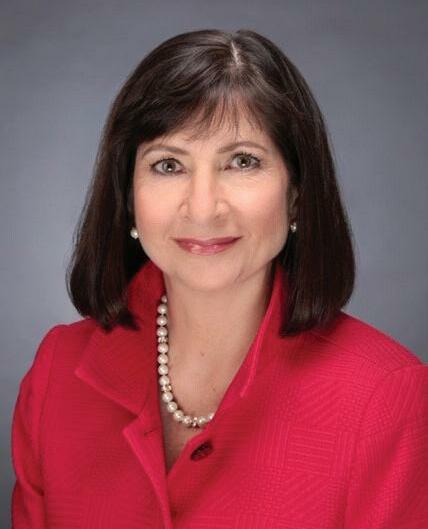 Leadership Fellow, National Association of Corporate Directors
Leadership Fellow, National Association of Corporate Directors
The Business Case for Expanding ESG Emphasis
Why U S corporate leaders must champion for change now
Europe generally leads the way when it comes to environmental, social, and governance (ESG) matters For example, the push for more female corporate directors began in 2008 with Norway passing legislation obliging public companies to reserve 40 percent of director seats for women In the years since, more than a dozen countries, including Belgium, France, Germany, India, Italy, Netherlands, and Spain, followed suit, passing similar quota mandates and guidelines In the U S , however, only California, Illinois, and New Jersey have taken meaningful action and a federal mandate on such inclusion remains elusive
Still, this diversity and inclusion development has not gone unnoticed in the financial world Not surprisingly, analysts, bankers, consultants, investors, and finance publications around the globe have attempted to evaluate and quantify the impact female directors have on shareholder value And while the results indicate a positive trend, the most strategic organizations and corporate leaders have already moved beyond focusing solely on shareholder value If your company hasn’t revised its key performance indicators to include various ESG aspects, including not only elements around board diversity but also climate change and employee benefit programs, I contend it’s already behind
Consider the following: The World Economic Forum in Davos has always been a hub for innovative ideas around corporate purpose and actions, and 2020’s meeting was no different The entire event loosely focused on “stakeholder capitalism,” asking investors to stand shoulder to shoulder with customers, communities, employees, directors, creditors, unions, suppliers, and governments by expanding their focus from shareholder profits to ESG matters and a system that benefits all stakeholders Last fall, Business Roundtable, a Washington, D C -based nonprofit association whose members are CEOs of major U S companies, redefined corporate purpose as “to promote an economy that serves all Americans ” BlackRock Chairman and CEO Larry Fink’s annual letter to CEOs this year spoke earnestly about climate change and the expected effect on the global economy Fink also warned that his firm, which has some $7 trillion in assets under management, would avoid investments in companies that have a high sustainability-related risk going forward
With this shift in focus away from just profits toward a larger combination of ESG values, all stakeholders, but especially institutional investors, are looking for data on public and private companies Public companies are increasingly being rated on ESG initiatives by proxy advisors like Institutional Shareholder Services (ISS) and Glass Lewis In turn, institutional investors and research analysts use this data for investment evaluation If your public company isn’t reporting on all of its ESG efforts, it likely isn’t ranking as high as companies
34 | www icpas org/insight
D I R E C T O R ’ S C U T STRATEGIES FOR TODAY’S CORPORATE FINANCE LEADERS
kppaskvan10@gmail com | ICPAS member since 1984
that are exceeding expectations by demanding their supply chain partners invest in environmental and conservation efforts; establish flexible work and wealth-building programs for employees; and upgrade diversity, inclusion, and executive compensation practices The bottom line is that collaboration across the stakeholder chain is necessary to create maximum impact and corporate leaders should be evaluating all kinds of options And while ESG policies are expected in the public company space, private companies should anticipate the same critical evaluation of their policies and practices
Consider these ESG questions reviewed by proxy companies:
ENVIRONMENTAL
• Does the company have an enterprise-level environmental policy?
• How is the company influencing actions by vendors and partners all along the supply chain?
• Has the company disclosed a climate change policy that specifically addresses risks, counterparty exposures and related business strategy, and financial planning?
• Does the company disclose water usage or water recycling program metrics?
SOCIAL
• Does the company disclose its human rights policy?
• Does the company have labor rights policies, including formal grievance channels? Does this include all operations, suppliers, vendors, and partners?
• Does the company publicly disclose data on workforce equality connected with gender, race, ethnicity, nationality, religion, LGBTQ, or other potentially protected classes?
• Does the company state a commitment to a fair and living wage for all employees?
GOVERNANCE
• Is the board chair an executive director or a non-executive director?
• Is executive compensation tied to ESG factors?
• What proportion of the board has a lengthy tenure? What proportion is diverse?
• Are shareholders informed of each board member’s attendance to board or committee meetings below 75 percent?
• What is the size of the CEO’s pay as a multiple of the median pay for peers?
These are just a few of the hundreds of questions requiring greater disclosure Annual report sections on ESG are expanding as additional topics are added each year Some key takeaways are that stakeholders want to see real action where climate change is involved, all the way through the supply chain They are expecting companies to hold their vendors and partners accountable for the policies each has in place and if the policies aren’t environmentally friendly, stakeholders expect a change to be made As large companies expand their policies and disclosures Microsoft recently announced a plan to be carbon negative by 2030 anticipate stakeholders’ expectations for all companies to rise with the tide This is true in the social and governance verticals as well Other examples of companies that have adopted expanded ESG policies include Delta, which instituted a new profit-sharing plan which reportedly gives each employee an additional two
months of compensation, and UBS Asset Management, which added an evaluation of sustainability and environmental concerns for all of its actively managed portfolios
As awareness and interest in ESG has increased, so have concerns about “greenwashing,” where a company conveys a false impression of its environmental friendliness, have grown Think of Volkswagen’s clean diesel scandal, or Nestle’s claim that its cocoa beans were sustainably sourced Organizations who hope to reap the benefits of the appearance of being ESG conscious while cutting corners behind the scenes should beware
But signs that ESG emphasis is not a trend are on the rise In Chicago, the city treasurer’s office announced that financial firms looking to manage a portion of the city’s $8 5 billion portfolio must “demonstrate commitment to diversity hiring and social responsibility under a newly launched scorecard system ” Further, organizations like the Thirty Percent Coalition and 2020 Women on Boards now exist to help diversify and expand the board director pool for women, a governance expectation that can no longer be ignored
For those of you at public companies, I suggest you assess all the materials that ISS and other proxy firms are reviewing You likely aren’t telling your organization’s whole story The momentum shift toward an ever-expanding ESG emphasis is creating an opportunity for companies that can be proactive and innovative in incorporating and evaluating ESG aspects in their business practices By making decisions based on the good of all, rather than just the good of shareholders, corporate leaders can create opportunities for everyone to benefit along the continuum of doing good and that brings more value to the entire organization
www icpas org/insight | SPRING 2020 35 Trent Holmes 800-397-0249 Trent@APS.net www.APS.net Whatever stage you’re in... STARTING your practice? GROWING your practice? SELLING your practice? O u r B e s t- i n - c l a s s B r o k e r s w i l l h e l p yo u a c h i e v e YO U R g o a l ! $1 Billion+ in Deals Closed
Mark J Gilbert, CPA/PFS, MBA President, Reason Financial Advisors mgilbert@reasonfinancial com | ICPAS member since 1982
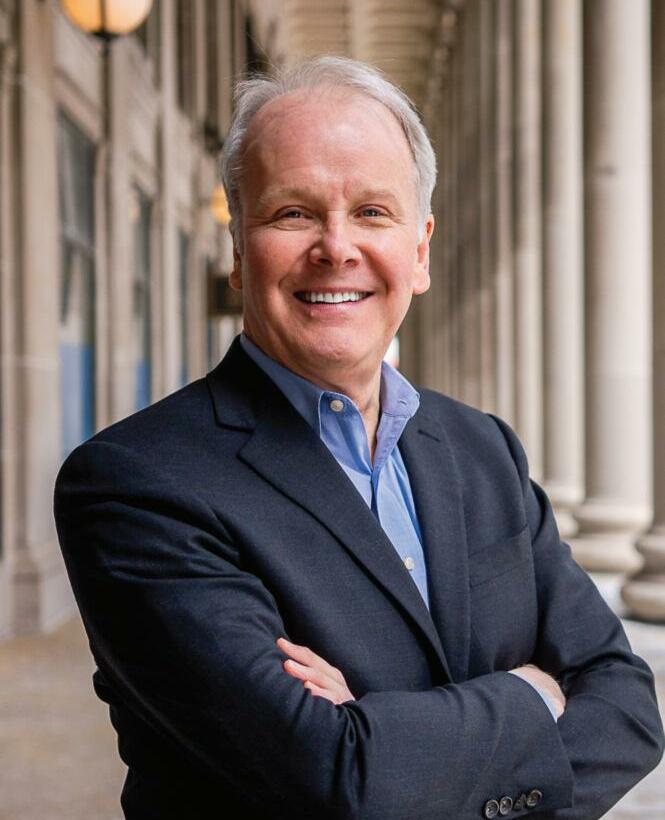
Building Women’s Wealth
To attract and retain women clients, CPAs and financial advisors must account for the unique differences between the way women and men save and invest.
Money It makes our worlds turn In the corporate world, financial decisions are typically made quite rationally using tools like discounted cash flow analysis and net present value There is or at least should be less of an emotional component to strategic decision-making because the primary goal is clear: maximize profitability or shareholder wealth In the personal finance world, however, separating emotion and rationality isn’t quite as easy
The creation and spending of personal wealth often carries with it the weight of our childhood memories and parental influences, lifestyle choices, educational level, family status, relationships, societal norms, and probably thousands of other influencers if we query further As strategic advisors, we need to be aware of these dynamics and account for them when providing clients with recommendations to improve their financial positions particularly when it comes to the growing segment of women investors
Their increasing wealth, and therefore need for personal finance and tax advice, presents a unique and important business development opportunity Countless studies highlight the differences in financial decision-making between men and women And while there are certainly exceptions to most rules, we cannot ignore the individuality of each client when advising them In fact, we become better advisors when we ’ re aware and acknowledge the specific needs of each of our clients and tailor our recommendations to them So, with that said, here are some generalizations worth observing if you want to better serve women clients
WOMEN LIVE LONGER
In January, the Centers for Disease Control and the National Center for Health Statistics reported that U S life expectancy increased in 2018 for the first time in four years The new statistics peg a woman ’ s average life expectancy at 81 2 years and a man ’ s at 76 2 years Anecdotally, I find these statistics unsurprising I would guess most of us know more widowed women than widowed men both in our personal and professional lives Heck, a visit to a retirement community dining hall would likely confirm this After reviewing my own client base, I realized that 60 percent of my ongoing comprehensive client relationships are either women-only or women-driven
The practical takeaway is that the advice we provide women clients should generally skew toward a longer life expectancy In my practice, I typically plan for a woman ’ s retirement through age 95 and a man ’ s through age 90 A recommendation I make in light of this is to defer pension benefit elections to the latest commencement start date and Social Security to age 70, which should aid in providing a woman or surviving wife with the largest monthly benefit
WOMEN ARE MORE RISK-AVERSE
Since at least 1996, multiple studies of men and women investors have concluded that women, on average, invest more conservatively than men The findings make it simple to state that women are more risk-averse, but the reality is more nuanced than that One study (Barber and Odean, 2001) attributed the result to men being more confident in their
36 | www icpas org/insight
F I N A N C I A L L Y S P E A K I N G BEST PRACTICES IN FINANCIAL PLANNING
decision-making abilities Another report (Badunenko, Barasinska, and Schafer, 2010) found that women are more conservative because they have fewer financial resources at their disposal Yet another study (Blake, Cannon, and Wright, 2019) showed that people with less financial knowledge and education reported higher risk aversion than those with such education This report also found that people with full-time jobs tend to be less risk-averse than retirees or those with part-time jobs My point in citing these studies is to make it clear that it is too simplistic and arguably outdated to assume that a woman is a more conservative investor simply because of her gender The advice provided to women clients must be based on insight that goes beyond simple investment risk tolerance models
WOMEN ARE OFTEN CAREGIVERS
Whether it be a natural instinct, a family tradition, or a social norm, women often take on caregiver roles and make their primary responsibility to care for children and/or elderly family members
That of course can mean time out of the workforce, which equates to time not earning a salary, pension, 401(k) match, or other disposable savings and investment funds
A 2019 Aon study concluded that about 70 percent of women face a 35 percent shortfall in needed retirement savings if they retire at age 67, due in part to women spending years out of the workforce while caring for others We can educate our clients on these findings, query the possibilities of them fulfilling similar responsibilities and, when appropriate, encourage greater savings and investments or possibly delaying retirement to narrow a looming savings gap
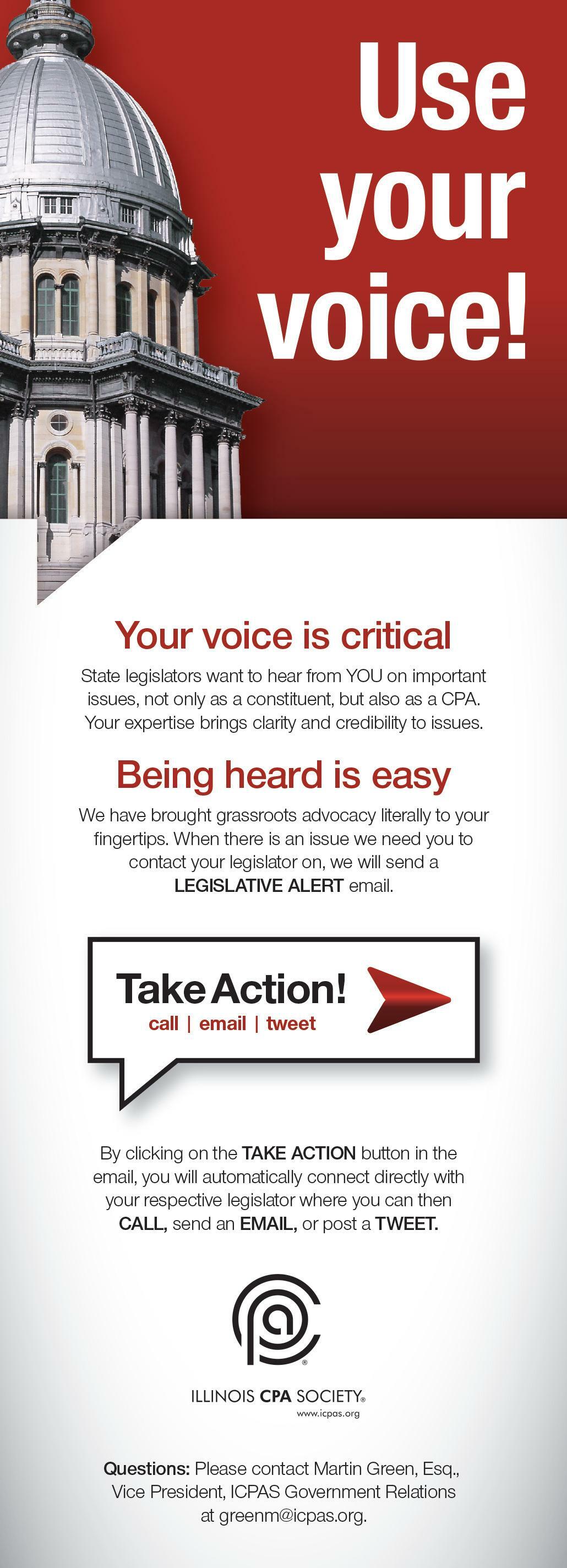
WOMEN ARE BETTER INVESTORS THAN MEN
The results speak for themselves A 2017 survey of more than 8 million Fidelity clients found that women achieved higher portfolio investment returns than men Fidelity suggested the following reasons for this:
• Women save more of their annual pay than men (about a 0 4 percent larger savings rate)
• Women earn higher annual returns than men (about 0 4 percent more each year)
• Women invest with a longer time horizon than men
• Women focus less on short-term investment performance and more on achieving long-term goals
• Women invest more in target-date and other age-based investment vehicles than men, thus improving portfolio diversification
• Women are 35 percent less likely to trade in their investment accounts than men, which reduces trading costs (although this advantage may be lost as brokers increasingly adopt commissionfree trading)
These results could easily lead us to believe that women generally are doing all the right things to provide for their future security But we can’t assume this is the case for all women or even all men As financial and tax advisors, we have an ongoing obligation to educate our clients about basic financial concepts and encourage them to make sound financial decisions Further, we must consciously consider the mindsets our clients have about their wealth based on not only their gender but also their life experiences In particular, we owe it to our women clients to ensure they understand the additional financial pitfalls they may face and assist them to successfully avoid them Providing this thoughtful and executable advice is how we move toward being not only trusted but clients’ most valued advisors
www icpas org/insight | SPRING 2020 37
Jon Lokhorst, CPA, ACC Executive Leadership Coach,
com
The Case for Upskilling Your EQ
Upskilling is on a rapid ascent in Google search trends and even as a hashtag on social media platforms The concept is now gaining traction in the accounting industry, with PwC announcing a commitment to spend $3 billion on upskilling its 275,000 employees over four years That followed Accenture’s announcement that it would spend $1 billion annually on upskilling, and Amazon’s reveal of its Upskilling 2025 Pledge
Although the literal dictionary meaning of upskilling includes any worker training, the term typically refers to the development of technology skills required by digital transformation in the marketplace And for good reason the number of jobs disrupted by bots, artificial intelligence, and other technologies is destined to climb
Beware, though: the drive to develop technology skills may inadvertently leave crucial people skills or soft skills behind, which could be devastating for CPAs who lean heavily toward the technical side to begin with but need solid soft skills to thrive and advance in their careers To that end, I contend that emotional intelligence (EQ) is an essential people skill to develop while you ’ re upskilling on the technology side
Daniel Goleman, whose 1995 book, “Emotional Intelligence,” introduced the concept into the corporate world, asserts that EQ’s contribution to leadership success is more than double the impact of IQ and technical skills EQ is perhaps best illustrated by an example of a leader who demonstrates a lack of it Consider the following interaction between a supervisor and an employee in a fast-growing organization:

Supervisor: I’m checking on the status of the ABC project. As you know, the final report is due in two weeks. It’s a critical project, and I need to know that you’re on track to get it done. It seems like we’re running behind.
Employee: I understand the deadline, and I’m working on getting the report done on time. My daughter had a severe medical situation pop up earlier this week. We spent one night in the hospital and haven’t gotten much sleep since then We’re trading off staying home with her while she gets better I’m still working on the project It’s just taking a bit longer than usual
Supervisor: That’s good to know. When did you say you’ll have the report ready?
In the haste for results, the supervisor overlooked the emotional wear-and-tear of the employee’s family situation and its potential impact on completing the project A single
38 | www icpas org/insight
L E A D E R S H I P M A T T E R S ENHANCING YOUR ABILITY TO LEAD
Career risks exist for accounting and finance professionals who forget to develop emotional intelligence alongside technology skills.
Lokhorst Consulting jon@lokhorstconsulting
interaction like this diminishes employee engagement, and a pattern of such behavior drives up the risk of turnover I wish this were a hypothetical example, but it wasn’t This situation was shared by a participant after one of my leadership presentations
DEFINING EQ
The Institute for Health and Human Potential defines EQ as “the ability to recognize, understand, and manage our own emotions and to recognize, understand, and influence the emotions of others ” EQ requires an appreciation for the impact of our emotions on other people, the impact of their emotions on us, and the ability to navigate interactions with others effectively
In his best-selling book, “Emotional Intelligence 2 0,” Dr Travis Bradberry describes EQ as having four dimensions, which can be summarized as follows:
• Self-awareness is the ability to recognize your own emotions and how they affect your response to the situation at hand It includes being able to understand the impact of your emotions on those around you
• Self-management is the ability to leverage the awareness of your emotions to respond to situations in positive and productive ways It includes an understanding of how circumstances or actions trigger your emotional responses
• Social awareness is the ability to recognize the emotions of others and how these emotions influence their responses to situations Empathy is a crucial component of social awareness
• Relationship management is the ability to use your awareness of the emotions of others to manage your interactions with them It’s essential to building healthy relationships
DEVELOPING EQ
While IQ is relatively static across a person ’ s lifetime, EQ can be developed and improved continuously if you make a conscious, focused effort to do so
Your first step to increasing your EQ should be assessing your current EQ There are several valid EQ appraisal tools on the market, the majority of which are offered online with immediate results Bradberry’s book includes access to an online assessment that generates an in-depth report with scores for each of the four EQ dimensions, along with lessons and strategies to improve in each area One unique feature of this tool is the ability to complete the assessment a second time within six months to gauge your progress
One of my leadership coaching clients, a healthcare CFO, used the Bradberry assessment masterfully to improve his EQ Dissatisfied with his initial scores, he created a plan to address his EQ gaps, which resulted in new behavior patterns and a substantial improvement in all four EQ dimensions during his six-month reassessment
UNDERSTANDING YOU
Gaining a better understanding of what triggers unproductive emotional responses in you is one of the most critical factors in improving your EQ These triggers can come in a variety of forms: certain people, places, words, or circumstances that get under your skin They’re hot buttons that trigger a response that doesn’t represent your best self and diminishes your leadership ability
Let’s say you hate being caught off guard or unprepared When asked a question or for an opinion, you want time to think through your answer or to research before formulating your response
But one of your clients or colleagues is notorious for regularly putting you on the spot in meetings with questions that demand immediate responses
This scenario is loaded with triggers and stressors Knowing that your buttons are likely to be pushed, you could visualize the situation ahead of time Based on your past experiences, anticipate the types of questions that may arise and prepare accordingly You could also prepare comments in advance that could keep you from feeling caught flat-footed and buy some time for you to respond
What’s important about learning your triggers is that it allows you to better anticipate when your EQ is likely to be tested When the trigger arrives, practice the power of pause and recognize this is an opportunity to shine as your best self Rather than a hasty reaction, choose a thoughtful response that enables you to contribute value to the person or situation When you can do this, you ’ re not only on your way to developing your EQ, you ’ re on your way to becoming a better leader
www icpas org/insight | SPRING 2020 39
Sometimes, your best resource is another ICPAS member. Join the thousands of member s using ICPAS CONNECT to ask a question, get a second opinion, share a resource or par ticipate in a discussion The private, online community forum just for you: Be par t of t he conver sation!
Character: What CPAs Can Learn From Aristotle
Knowing who you are is how you become a better you, a better leader, and a better CPA
Character is important The components of character have been studied for centuries and are the focus of several philosophers’ and researchers’ work Character drives your consistent application of values in both familiar and foreign situations, and it is recognizing your strengths and shortcomings Character is defined as “the mental and moral qualities distinctive to an individual,” which makes character a critical part of who you are and how successful you can become
One of the most referenced descriptions of character comes from Aristotle, who saw positive character virtues existing on a spectrum between two extremes: deficiency and excess In other words, our strengths can become weaknesses when taken too far or when ignored Aristotle’s virtues and vices, as described in “Nicomachean Ethics”:
Elizabeth Pittelkow Kittner
ethicscpa@gmail com | ICPAS member since 2005
Virtue
Courage
Temperance
Liberality (generosity)
Magnificence (self-value)
Magnanimity
Proper ambition
Patience
Truthfulness
Wittiness
Friendliness
Modesty
Excess Deficiency
Rashness
Licentiousness (self-indulgence)
Cowardice
Insensibility
Prodigality Illiberality (meanness)
Tastelessness
Vanity
Empty ambition (greed)
Irascibility
Boastfulness
Buffoonery
Pettiness
Pusillanimity
Unambitious (apathy)
Lack of spirit
Understatement
Boorishness
Obsequiousness (flattery) Cantankerousness
Shyness
Shamelessness
Righteous indignation Envy Spitefulness
Interestingly, research first published in 2014 by Amy Y Ou and her colleagues from NUS Business School, National University of Singapore, concluded that virtuous behaviors lead to more success in business They found humility and modesty in a CEO are virtues that lead to stronger organizational performance, perhaps because virtuous behavior facilitates positive relationships with the people around you
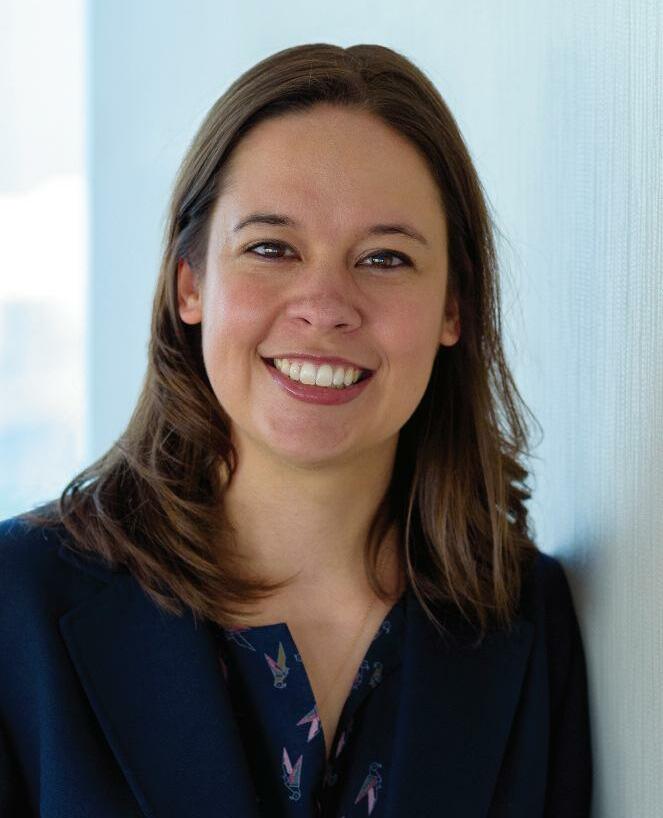
Are you static on who you are, or are you consistently looking for ways to improve yourself ? Character drives how we act, how we are perceived and, ultimately, how successful we and our organizations can become in the long term
MAKING VIRTUE A HABIT
If you want to become a better you, a better leader, and a better CPA, you can work toward making your virtues habitual as Aristotle recommended
40 | www icpas org/insight
E T H I C S E N G A G E D EXPLORING ETHICS IN BUSINESS & FINANCE TODAY
CPA, CGMA, CITP, DTM
Head of Finance, International Legal Technology Association
1. Do your best (even with the little things). For example, be on time to meetings People may not notice your timeliness, but they will notice your untimeliness Showing up on time is respectful of others’ time and demonstrates self-discipline How do you feel about the person who constantly shows up to meetings late? You may wonder what else that person is not doing well And be cautious of shortcuts “It takes too much time to do the right thing,” or, “No one is going to be hurt if I modify the results,” are common justifications for speeding through tasks today We live in a society that values efficiency and quickness to results However, these types of justifications jeopardize our work and reputation and can become a slippery slope to other vices
2 Be purposeful In finance and accounting, we have a basic responsibility to accurately report numbers and to help nonfinancial minds analyze the data for decision-making Spend your time on the items that matter most and make a difference in what you are doing For example, improve a process, te colleague a new skill, or provide information you have to c or colleagues that will help to make their jobs or lives e Remember to practice humility in your role and share the for your successes

3 Demonstrate courage Practicing empathy and sho courage can help you work through crucial conversations e rather than later In business, courage often looks like spe up when it is difficult Courage is respectfully challenging and helping work toward the greater good and better deci Courage is also letting others challenge your ideas, means you need to create an environment that welcomes communication Maya Angelou said, “Courage is the important of all the virtues, because without courage you practice any other virtue consistently You can practice any erratically, but nothing consistently without courage ”
4. Be accountable. Take responsibility for your work and ow to mistakes instead of sharing or passing blame T behaviors will garner trust from your colleagues and clie strong work ethic is also motivating and inspires others more, too Other ways to express accountability might in doing more than the minimum in your commitments or me deadlines early
5 Choose kindness When you are feeling a negative emotio frustration, anger, or annoyance, it can be tempting to tak your feelings on the people causing the negative emotion other people around you This behavior perpetuate negativity When we choose kindness and gratitude, w change the environment around us, and we can encourage virtuous behaviors in others In a work setting, publicly recognize people for their good contributions, and explain to them and to others why their work matters In any setting, if a stranger is unkind to you, be kind in return Give them the generous assumption that they may be experiencing a tough circumstance you do not see
WORDS OF WISDOM
Character-building starts in youth and evolves continuously We are works in progress I encourage you to find people who inspire you and pursue them as formal and informal mentors Use them to counterbalance your interactions with negative people, learn how you are perceived, and cultivate your character
Continuing to increase your self-awareness, values, and integrity, and testing them through new experiences is how you learn who you truly are, where you need to grow, and how virtuous you can be
www icpas org/insight | SPRING 2020 41
More t han 130 new cour ses jus t added! for only $259! Gain instant access to the hottest topics delivered in a fun and engaging format www.icpas.org/accesspass Subscription good through September 30, 2020
Art Kuesel President, Kuesel Consulting art@kueselconsulting com

Are You Ready to Fire Your Worst Clients?
As a growth consultant, it’s not often that you will hear me talk about walking away from business, but if you are serving too many C-, D-, and even F-grade clients at the expense of your A- and B-grade clients, that’s when the warning bell rings If your time is consumed with smaller, fee-sensitive, low realization work, that means that your larger, non-feesensitive, high realization clients aren’t getting the attention they deserve While it may still seem counterintuitive to shed clients when you ’ re trying to grow your business, there are times when firing clients actually facilitates faster and greater growth
When I speak to partners about best practices in firing clients, I commonly hear comments like, “We aren’t afraid of firing clients,” or, “We fire bad clients all the time ” However, a light probe of these statements generally reveals that these were extreme cases where clients acted unethically or treated staff poorly Though that’s certainly a good reason to fire a client, it’s not the concept we are exploring today Having a comprehensive client evaluation program is about much more than getting rid of a few bad apples
Why is this so important today? First, it’s incredibly difficult to find and keep great staff in today’s job market When you build a strong team, you want them working on top-tier clients, period Next, your firm is not the same as it was five years ago Your larger clients have gotten bigger, while others have largely stayed the same At some point, you will have upskilled your talent and firm to service those larger accounts, leaving the smaller accounts that haven’t kept up their growth to drag down your profitability and growth Third, compression of the tax season is a common reason why some firms finally shed smaller and one-off clients Serving a high volume of low-value clients is simply not the way a modern CPA firm can survive Finally, profitability at our firms has been in a vise the last several years; technology, personnel, and overhead expenses are growing faster than revenue in many cases You simply cannot afford to serve highly price-sensitive clients that generate huge write-offs while hoping to grow your bottom line
So, what does a comprehensive client grading program look like? It’s a simple matrix that allows you to assess the quality of your client relationships You will want to consider the following aspects for each of your client relationships:
1. Fees: Does the client meet the minimum fee threshold set by your firm? If you don’t have a minimum fee, perhaps you have been increasing your starting fee over the years and some clients have never caught up
42 | www icpas org/insight
P R A C T I C E P E R S P E C T I V E S MOVING YOUR FIRM FORWARD
Sometimes the best growth tactic is pruning the clients that are holding you back
2. Realization & Payment History: Are you making a minimum of 80 percent realization on the client? The average realization rate for firms hovers around 85-90 percent Do they pay on time or are they often beyond (or way beyond) your terms?
3 Number of Services Utilized: Is this a tax return-only client or audit-only client, or do they also buy other services like tax planning, business valuation, consulting, etc ? Statistics show that clients who buy only one service have much lower long-term retention rates than clients who buy multiple services
4. Growth Trends: Is this client growing, maturing, or declining? The economic phase of the client can give clues to their future profitability and retention
5. Referral Power: Does this client serve as a conduit to other connections and clients? Are they making introductions and referrals for you? A client that helps you make connections and makes referrals for you is extremely valuable
6. Ease of Working Relationship: Does the client treat your staff well and avoid pushing ethical boundaries? Are they pleasant to work with? If not, your staff will not like interacting with these clients and over time you may lose valuable employees
You will note that the first three criteria for evaluation are largely objective, while the last three criteria are more subjective That means no matter how scientific you want to be, you will never fully remove emotion and subjectivity from your client evaluation process But, overall, this type of evaluation will give you a good idea as to which clients should be fired
A good target to consider is 10 percent forced attrition per year, meaning cull the bottom 10 percent of your client base annually Realistically, though, you can expect a strong argument from your partners against firing low-grade clients, as some of these clients are bound to be friends, relatives, and long-term relationships that escape the rationale of this kind of an exercise
When you consider all the reasons why firing clients makes sense, you may be nodding yes more than you are nodding no Just remember that every dollar of revenue is not created equally, and the dollars earned from serving low-grade clients at the expense of your high-grade clients may well not be worth it
We’re Building a Bigg er& Better Home for Cor porate F inance Professionals
Your needs are uniq ue. CCFL is dedicated to meeting those needs with programs and ser vices t ailored for you.
Education
S trategic programs focused on real-world solutions
• ICPAS Summit20: Corporate Finance Track
August 25-26, 2020
• Financial Repor ting Symposium
September 24, 2020
• Controller s Conference
March 202 1
Cor porate Access Program
The go-to resource for your entire corporate finance team, all for one low price.
Networ king Breakfasts
Quar terly programs to expand your knowledge base, share best practices and network
Cor porate
Finance Insight
Bi-monthly e-publication delivered to your email box featuring insightful corporate finance news and trends
Cor porate Finance Online Community
Check us out today!
www.icpas.org/ccf l
Connect with fellow corporate finance professionals to ask questions, discuss issues and receive input
Career Center
Tools to help you climb the corporate ladder including job postings, aler ts, resume posting and career coaching
www icpas org/insight | SPRING 2020 43
Keith Staats, JD Executive Director, Illinois Chamber of Commerce Tax Institute
Illinois Tax Potpourri: Three Issues of Interest to Taxpayers
From tax incentives to audit instructions, Illinois taxpayers and CPAs have a lot to watch as legislators and courts tackle more tax issues
With all that has been happening in Illinois tax, it’s impossible to settle on a single topic for this quarterly column So, let’s decode three issues of interest to auditors, business owners, CPAs, and taxpayers alike
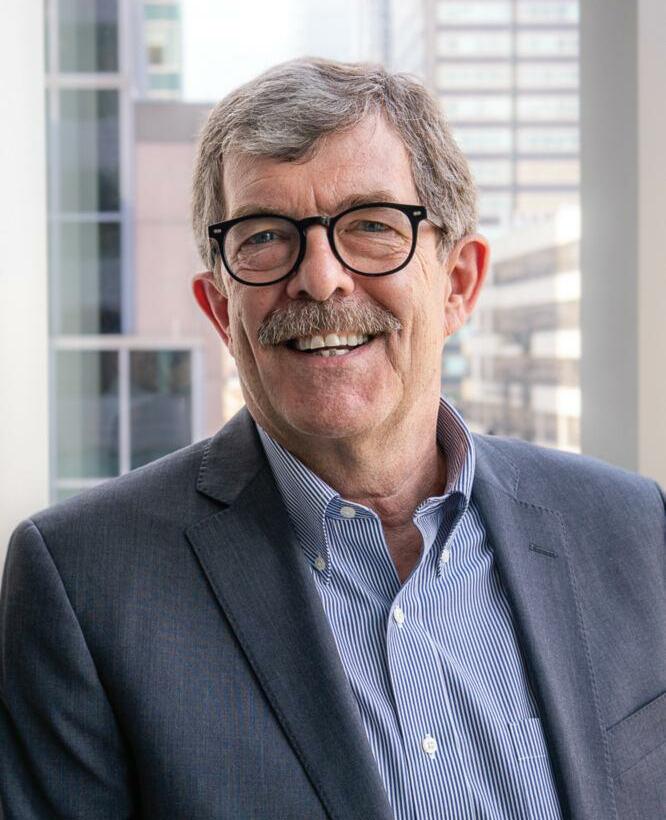
THE RELEASE OF IDOR’S AUDIT MANUAL
In late December, the Circuit Court of Sangamon County ruled in Tax Analysts v Illinois Department of Revenue, No 2018MR001018, that the Illinois Department of Revenue’s (IDOR) audit manual is not exempt from disclosure under the Freedom of Information Act
The audit manual is, as you’d expect, a multi-volume compilation of instructions to auditors
Unlike in many other states, IDOR has resisted releasing the audit manual to the public, arguing that it is exempt from disclosure under the Freedom of Information Act Among other things, IDOR contends the audit manual contains confidential information that, if disclosed, would provide taxpayers with a road map to tax evasion
In my roles on IDOR’s legal staff, I had access to the audit manual and reviewed many of its proposed revisions It is my estimation that during my nearly 10 years with IDOR, more than 95 percent of the material contained in the audit manual did not contain confidential information As I recall, the audit manual consisted of a detailed outline of the various tax acts administered by IDOR, the rules under the various acts, the case law construing those acts, and IDOR’s positions on issues with implementing and enforcing those acts There were instructions to auditors about “tolerances” and cost/benefit analysis instructions for when an issue should be pressed in an audit Those instructions could and should be edited out of a public version of the audit manual Absent those instructions, I see no credible basis for failing to publish the rest of the audit manual
I suspect we’ll see more on this topic and, ultimately, the public publication of the audit manual at some point
THE HOSPITAL CHARITABLE PROPERTY TAX EXEMPTION
The Circuit Court of Champaign County recently issued a 145-page decision and opinion in The Carle Foundation v Illinois Department of Revenue et al , No 2008-L-202, ruling that the foundation is entitled to charitable property tax exemptions for four parcels for the 2005-2011 tax years
This decision is the latest chapter in litigation concerning the parcels, which had been granted charitable exemptions for many years until being denied in 2004 That exemption denial was upheld by the local board of review and IDOR’s exemption division
44 | www icpas org/insight
T A X D E C O D E D DECIPHERING TODAY’S STATE AND FEDERAL TAX LAWS
kstaats@ilchamber org | ICPAS member since 2001
The litigation began in the Circuit Court of Cook County in 2007 and simultaneously in IDOR’s administrative hearing division The case was transferred to Champaign County in 2008 after one of the defendants filed a motion for a change of venue The case was filed directly in the circuit court under Section 23-25(e) of the Property Tax Code as a cause of action “to establish a tax exemption for a specific assessment year for property determined to have been exempt on comparable grounds for a prior or subsequent year ”
The local taxing bodies attempted to dismiss the case on various grounds, including that it was improper to go directly to court to challenge the exemption denial The circuit court judge allowed an appeal to the appellate court on that issue prior to hearing the substance of the case The foundation prevailed in the appeals court and the case was returned to the circuit court in The Carle Foundation v Illinois Department of Revenue, 396 Ill App 3d 329 (2009)
While the legal jousting was occurring, Public Act 97-688 was enacted, effective June 14, 2012, establishing a new charitable hospital property tax exemption under Section 15-86 of the Property Tax Code This resulted in yet another interlocutory appeal to the appellate court over whether the new exemption applied to the tax years at issue prior to the effective date of the new law The appellate court ruled in The Carle Foundation v Cunningham Township, 2017 IL 120427, that the new law did apply to the tax years at issue However, the appellate court also ruled that Section 15-86 was facially unconstitutional
Both sides appealed to the Illinois Supreme Court In 2017, the Illinois Supreme Court vacated the appellate court’s ruling that Section 15-86 was facially unconstitutional and sent the case back to the circuit court where the case remained on hold while the Illinois Supreme Court considered the constitutionality of Section 15-86 in another case In the 2018 case of Oswald v Hamer, the Illinois Supreme Court upheld the constitutionality of the hospital property tax exemption
Finally, after 12 years, the case went to trial on Jan 2, 2019 After 20 days of trial and many witnesses, the court eventually ruled in favor of The Carle Foundation on Feb 5, 2020 and ordered a refund of over $6 million
The length for the decision and opinion is highly unusual for a case in circuit court and, at this point, I don’t know whether the case will be appealed again
THE PROPOSAL TO STOP TAX INCENTIVES
The House Revenue Committee held a subject matter hearing in February on HB 4138, or the Phase Out Corporate Giveaways Compact This ill-advised legislation would authorize Illinois to enter into a multistate compact with any state and the District of Columbia, in which each member state of the compact agrees not to offer or provide any company-specific tax incentive or grant to any entity located in any other member state as an inducement to relocate to the offering member state
The testimony in favor of the proposal was made during an hour of mind-numbing academic theorizing by representatives of Americans for Prosperity and the Mercatus Institute Their contention is that all tax incentives are bad, and the adoption of the compact will start states down the road to eliminating all tax incentives
In full disclosure, if you couldn’t tell from my tone, I testified in opposition to HB 4138 I pointed out that among its other flaws, the legislation would authorize a private right of action by any “taxpayer
resident” who wishes to challenge the granting of a companyspecific tax incentive I noted the Illinois False Claims Act’s track record demonstrates problems endemic in granting a private right of action that authorizes third parties to go to court to seek a determination involving taxes of someone else At best, the language of the legislation would result in the attorney general wasting resources by going to court to respond to specious claims
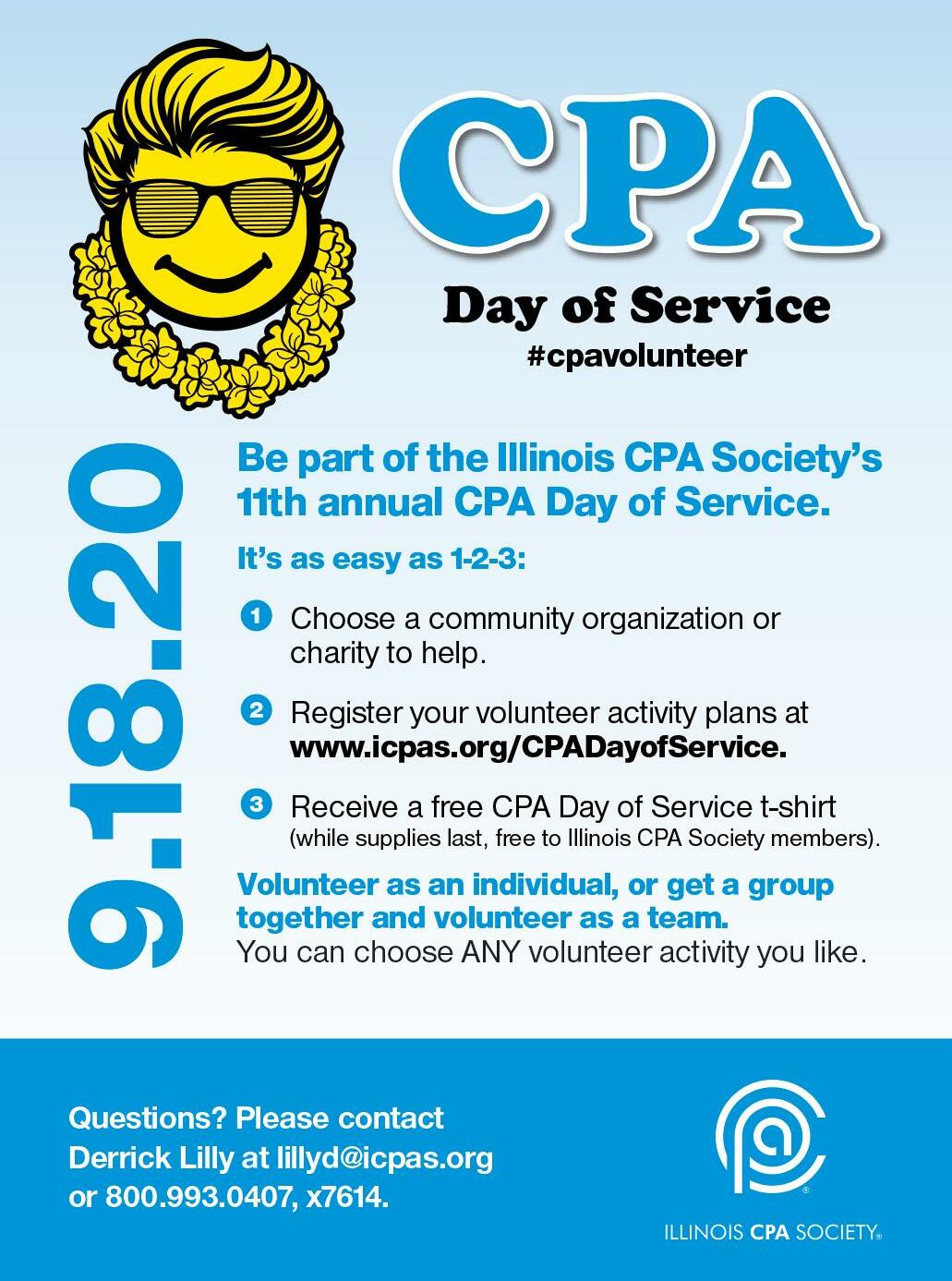
At worst, the attorney general, acting on behalf of the party bringing the case in court, would end up adverse to IDOR and/or the Illinois Department of Commerce and Economic Opportunity, and the courts could begin second guessing incentive awards
Ultimately, the compact would outlaw state-level tax incentives By outlawing only state-level incentives and not local incentives, the legislation would give an unfair advantage to affluent portions of the state that could afford to offer incentives to businesses
Finally, even though the compact would be an agreement between member states, the restrictions would have broader implications
Take for example a situation where a company proposes to relocate its headquarters, manufacturing facility, or data center Five states, including Illinois, would like the company to relocate to their state Illinois and one of the other states are members of this compact In that situation, because of the restrictions of the compact, Illinois would be precluded from offering any incentives to attract the company to Illinois, but all of the other states, with the exception of the other compact member state, would be free to offer incentives Thus, the non-compact states would have a competitive advantage
In short, there’s a lot to decode when it comes to tax in Illinois
www icpas org/insight | SPRING 2020 45
Director
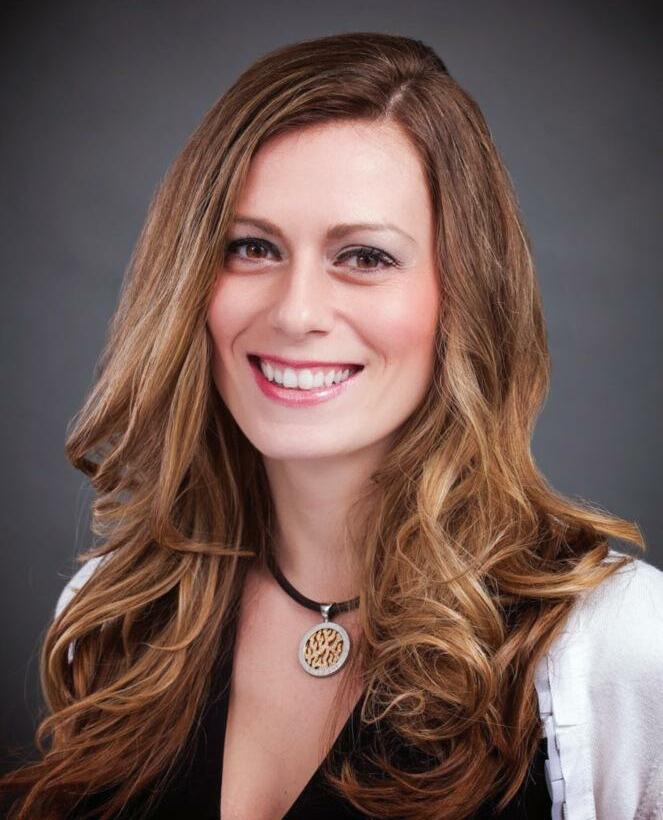
Non-GAAP Measures: Seeking Clarity
IASB moves to increase the relevance of non-GAAP measures like EBITA and EBITDA in financial reporting
Earnings before income taxes and amortization (EBITA) and earnings before income taxes, depreciation, and amortization (EBITDA) and related non-GAAP measures are in the news again Berkshire Hathaway’s Charlie Munger recently made headlines by calling them “BS” earnings According to an annual summation by PwC, non-GAAP earnings were second only to revenue recognition in the number of U S Securities and Exchange Commission (SEC) comment letters The SEC has acknowledged that “non-GAAP financial measures can be useful disclosure metrics intended to provide insight into company performance and prospects” and “in certain cases, they more accurately describe the financial picture than the comparable GAAP measures ”
However, on multiple occasions, the SEC has also expressed concern that non-GAAP measures can be misleading to investors and has gone so far as to publish a Q&A specifying the measures that may be misleading if presented inconsistently from period to period Despite the concerns, non-GAAP measures are more popular than ever The use of non-GAAP measures in the S&P 500 increased from 59 percent to 96 percent of SEC filers between 1996 and 2017, while the number of metrics per filing increased from an average of 2 35 to 7 45 in the same period, according to Audit Analytics Clearly there is demand for non-GAAP measures but are non-GAAP metrics more useful than GAAP?
Earnings before income taxes (EBIT) is often viewed as a proxy for operating income EBITA includes depreciation expense while EBITDA excludes it on the argument that the “D” reflects financing and accounting decisions related to capital expenditures needed to grow or maintain the business and should be excluded
A recently published academic paper by Doron Nissim at Columbia University updates the relationship between EBIT, EBITA, and EBITDA Professor Nissim points out that the average amount of amortization as a percentage of EBITDA has more than tripled since 2003 due to changes in the accounting for business combinations Internally generated intangible assets are generally expensed while acquired assets are initially accounted for at fair value and then subsequently at amortized cost, making comparisons between companies with different growth strategies problematic EBITDA remains controversial as adjustments are subjective
How well do these measures explain stock prices? According to the study’s results, throughout the sample period (March 1989 – February 2019), EBITDA performed better
46 | www icpas org/insight
I N S I D E F I N A N C E NAVIGATING THE INS AND OUTS OF CORPORATE FINANCE
ICPAS member since 2018
Nancy Miller, CPA Senior
of Accounting, Reynolds Group Holdings nmiller icpasarticles@gmail com |
than EBITA, which in turn performed better than EBIT in explaining stock prices However, EBITA’s dominance over EBIT has been increasing over time, consistent with the increase in the significance of amortization
What about predicting future returns? Here the picture is less clear EBIT, EBITA, and EBITDA performed well in predicting future returns during the 1990s and 2000s but not more recently This could be an indicator that any potential for “beating the market” using these measures has been arbitraged away
Of course, many firms use adjusted EBITDA As noted, there are no standards for giving guidance on what could be considered an adjustment since the measurement is non-GAAP Common exclusions include stock option expense and restructuring costs, but acquisition costs and various non-cash costs, such as impairments, may be excluded depending on management’s judgment This remains controversial Jim Leisenring, CPA, a former FASB vice chair and member of the IASB (and a frequent speaker at ICPAS events), has been known to describe such adjustments as “earnings before undesirable debits and, less frequently, undesirable credits ”
So, is it time for a new measure? The FASB and the IASB tried to reformulate the income statement during the heyday of convergence fever between 2008-2011 Now, the IASB is trying again A new exposure draft, “General Presentation and Disclosures,” which prescribes the presentation of certain key subtotals in the income statement and increases “transparency and discipline around the calculation and presentation of those subtotals,” is out for comment
The IASB makes it clear in the invitation to comment that they do not intend to eliminate the use of non-GAAP or non-IFRS metrics Rather, the goal is to introduce guidelines The IASB notes that, in practice, both preparers and investors use subtotals to better explain and understand business performance Subtotals, such as operating profit and EBITDA, are very commonly used but are defined in very different ways across companies The IASB staff reviewed 60 companies in different countries and industry sectors in coming to this point of view For example, it found about 70 percent of companies used the operating profit subtotal, but more than nine different calculations were used to reach the subtotal Some companies included investment income while others didn’t; some excluded various items they considered non-operating or non-recurring, others didn’t The consequence? An increasing use of “self-defined” subtotals, or non-GAAP measures, due to the lack of a standard definition The IASB is therefore proposing that nonIFRS measures, or “management performance measures, ” be addressed by bringing the measures into a single note in the audited financial statements This wouldn’t restrict the use of these performance measures, but it would require more transparency and a reconciliation to the most directly comparable total or subtotal specified by IFRS
The exposure draft is available at www IFRS org and the comment period runs until June 30, 2020 Will you be seeking clarity or submitting a comment on the IASB’s proposal?
Author’s note: This article features contributions from John Hepp, Ph D , clinical assistant professor of accountancy in the University of Illinois’ Geis School of Business
www icpas org/insight | SPRING 2020 47
Tim Jipping, CPA, CGMA Owner, Journey Advisors & CPAs
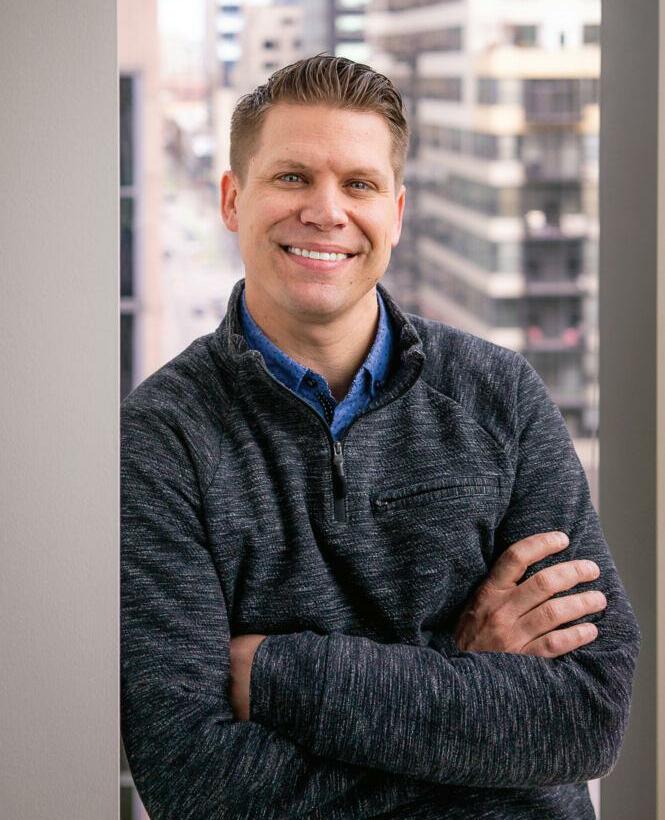
How ‘OK, Boomer’ Is Holding You Back
Recently, I was meeting with a prospective new client to discuss her tax situation Throughout the meeting I could feel her glare as she sized me up Finally, near the end of our conversation she asked the question she’d been holding back for 30 minutes: “Just how long have you been doing this sort of work?” It was a polite way of asking, “Exactly how old are you, my dear?”
Frankly, this wasn’t the first time I got this question In fact, I’d say for everyone I work with above the age of 50, experience (ahem, age) is a large concern Sometimes it takes all my self-control to avoid snapping back with a snide remark like, “I’ve been doing this a lot longer than you think!” Lately, however, I’ve been assuring prospective and new clients they’re in good hands with my nearly six months of accounting experience!
All kidding aside, even at 35 years of age (in case you were wondering), I still feel a little like Rodney Dangerfield in these situations I have to refrain from rattling off my resume in a desperate attempt to prove I’m worthy of respect This need to justify my age and experience has certainly diminished over time (with age and experience, I should note), but it still lingers I know this is a struggle shared by many ambitious young accounting and finance professionals especially among those of us launching our own firms: How can I earn respect from my clients or colleagues and position myself as an expert despite my age?
DEFINING OUR TERMS
The first step is understanding what we really mean when we ask for respect and want to be seen as an expert According to Dictionary com, these words have the following definitions:
Respect: Esteem for or a sense of the worth or excellence of a person
Expert: A person who has special skill or knowledge in some particular field
For many young professionals, including myself, it’s not that we expect others to respect us and acknowledge us as experts instantly The issue is the assumption that our lack of crow ’ s feet means we ’ re not capable of doing our jobs I certainly don’t want clients to assume I’m a novice until my hair starts to gray
Let’s face it, though, it’s still going to happen sometimes While we can’t change others’ assumptions, we can take steps to overcome them without resorting to the “OK, Boomer” retort There are two obvious, yet critical, elements to earning respect and being perceived as an expert: Be respectable, and actually be an expert
48 | www icpas org/insight
| ICPAS member since 2012 F I R M J O U R N E Y NAVIGATING THE ACCOUNTING AND CONSULTING LANDSCAPE
tim@journeycpas com
Young accounting and finance professionals can overcome bias, project professional expertise and, ultimately, earn respect if they lose the ‘OK, Boomer’ mindset.
BE RESPECTABLE
First, stop worrying about whether or not someone is withholding respect because of your age If someone doles out respect on that basis, there’s little you can say or do that will alter their philosophy However, you can still be a person worthy of respect What does a respectable person look like?
• They acknowledge their inexperience: There will never be a time in your life when you ’ re not inexperienced at something, so get used to it and own it Embrace your level of experience rather than trying to hide it
• They want to learn: There’s nothing more respectable than a growth mindset, a strong will, and an exhibited curious mind
• They don’t just repay people in kind: Don’t require respect as payment before offering it In other words, treat people with respect even when they’re not offering respect themselves Do otherwise and you’ll be perceived as being just as miserly as they are
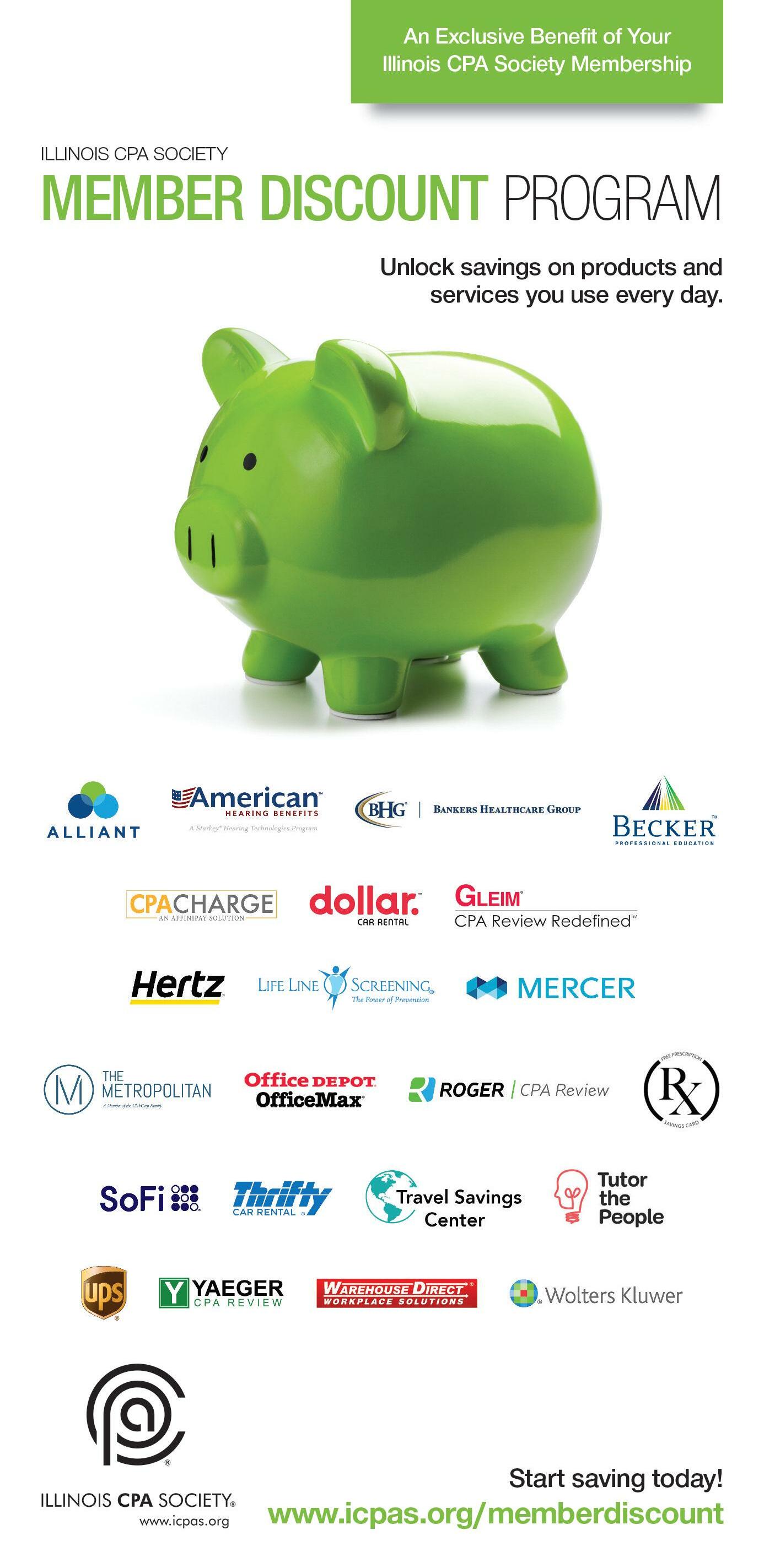
BE AN EXPERT
I’ve written about the importance of mastering skills in this column before I’d argue that expertise is actually the journey toward mastery, not the destination itself You don’t wake up one day having learned that one final piece of knowledge that suddenly makes you an expert Rather, it’s the mindset and process of continuous improvement that positions you to be a respected leader in your field Being an expert does not mean you know everything there is about a topic If we refer to the definition above, an expert is simply someone with a specialized knowledge or skill You, as a CPA, already have specialized knowledge and skills now start your journey toward mastery Consistent deployment of desire, intention, and action is how to move forward and be seen as an expert in your field I believe this is key to acquiring anything, including others’ respect
BE AUTHENTIC
In the end, you can’t control what other people think of you So, who cares what they think? You can’t force them to give you respect or treat you as an expert You can only control your mindset and actions If you stop focusing on what other people think of you and focus on your own performance and attitude, I can assure you that you’ll win respect long before your crow ’ s feet come in
www icpas org/insight | SPRING 2020 49
JoAnna Fu Simek, CPA, MST, is a partner at BKD
CPAs & Advisors in Chicago She is an active ICPAS member, serving on the Diversity Advisory Council Committee, State and Local Tax Committee, and Tax Executive Committee
Three Lessons for Leaping Into Leadership
Here are the lessons I learned along my path to making partner at age 35.
 BY JOANNA FU SIMEK , CPA , MST
BY JOANNA FU SIMEK , CPA , MST
My first job out of college was in tax consulting, serving clients across the country I was always on the road, traveling wherever I was needed, watching my airline and hotel points rack up At first, it was fun I got to visit friends and see new places But after a few years, I got tired of the road warrior life and decided to make a change
I shifted from consulting into public accounting Yes, that is the opposite move most CPAs make I knew this change would be difficult Even though I knew how to work with clients, solve problems, and manage projects, I lacked the technical background demanded in public accounting When I started preparing tax returns, I honestly had no idea what I was doing most of the time What I did know was hard work would pay off I leaned into my new career and the challenges it brought, accepting that I didn’t know exactly where the path might go The path led me a young, minority, female CPA to becoming a partner at BKD CPAs & Advisors Here’s what I think led to my success:
A PASSION FOR LEARNING
Learning is more than technical knowledge In accounting, knowing your craft is par for the course Learning about what makes an organization tick, what motivates others, how to build new skills, how to develop people, what’s important to clients these are just some examples of non-technical areas which become increasingly important when you move up in an organization Every time you get a promotion, you need to learn new skills that increase your value to colleagues and clients What got you to where you are will not be enough to get you to where you want to go
THE WILLINGNESS TO SPEAK UP
Over time, the willingness to speak up, ask questions, and offer new ideas will get you noticed For me, it meant being asked to join or lead a task force or a special committee This opportunity gave me a chance to meet people outside my daily interactions and to hear perspectives I may not have considered This kind of experience can give you unique visibility and access to leaders that you may not normally have Who knows, this might be how you meet your next mentor, sponsor, or career advocate! That said, knowing when to speak up is important Being a rather opinionated person, I found myself sometimes on the receiving end of a reprimand for interrupting too much when I should have been listening There is a time and place for speaking up, and there are times to listen and learn
A FOCUS ON YOURSELF
Comparing yourself to others is natural, but it can be the thief of joy Worrying about someone else getting a (perceived) better project, enjoying better work perks, or moving up faster than you can make you bitter or resentful Choose your attitude every day Channel your energy into making sure your strengths are indisputable instead of being distracted by others
One last comment from someone who’s often the only female, only non-white, and youngest person in a meeting: Don’t use a crutch the world owes you nothing What I mean by this is that I never wanted to draw attention to the fact that I was female, Asian, or the youngest person in the room I felt my seat at the table had been earned by being good at my job, not just given to me to fill a quota I once asked one of my mentors if he thought my age worked against me He told me that once I opened my mouth, people would realize I knew what I was talking about Have confidence in yourself, and when you earn a spot at the table, know that you deserve it
50 | www icpas org/insight
E d y t a G r a z m a n P h o t o g r a p h y

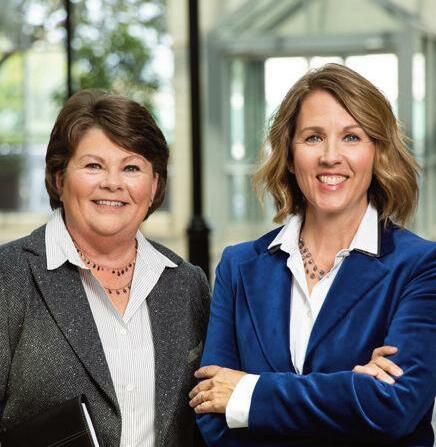

CLASSIFIEDS BUY OR SELL AN ILLINOIS ACCOUNTING OR TAX PRACTICE ILLINOIS PRACTICES FOR SALE (gross revenues shown) Grayslake Area CPA $190K NW Chicago CPA $220K; E Central IL CPA $250K Ava lable af ter 4/15/20 Metro Chicago CPA $629K; Bloomingdale CPA $225K; and NW Indiana-Upper Lake County Area CPA $997K For practice details call 1-800-397-0249 Or, visit us at www APS net to inqu re about avai able oppor tunities and register for free email updates THINKING OF SELLING YOUR PRACTICE? Accounting Practice Sa es is the leading marketer of accounting and tax practices in Nor th America We have a arge pool of buyers, both individuals and firms looking for practices now We a so have the experience to he p you find the right fit for your f rm, negotiate the best price and terms and get the deal done To learn about our risk-free and confidential ser vices, call Trent Holmes at 1 800 397 0249 or email Trent@APS net VALUATION OF YOUR CLIENT’S BUSINESS OR PRACTICE Cr andall & Br ackett, Ltd 630 34 4 2355 | rober t@cr andall-br ackett com | www crandall-brackett com Our only ser v ce is per formed on your beha f in a mutual engagement setting From basic research to a full valuation, we ta lor our ser vices to your needs We author teach and par ticipate on policy sett ng committees and boards w thin the valuation profession Selling your accounting fi rm is complex. Let us make it simple. Cont act Us O ce 866.260.2793 accountingbizbrokers.com Kathy Brents Christy Hud son www icpas org/insight | SPRING 2020 51 Expl o r e t h e C GMA® P r ogram: A lifelong professional learning journey that puts you on the path to take your career to a new level You’ll learn and acquire the skills it takes to become a more strategic, con dent, secure and insightful leader Get started at CGMA.org/Program Distinguish yourself as a strategic leader. �arn the glo�al designation for nancial �rofessionals. Holl y R odill o B ernstein , C PA , CGMA Director o f Acc o u nting, S o u lCycle © 2 017 A s s o ciat i o n o f I nter n a t i o n a l C ertif i e d P rof e s s i o n a l A ccountants. A l l r ight s r eserved 2 2726C-326
Anna Kooi, CPA
Partner and National Financial Services Practice Lead at Wipfli LLP
Interviewed by Derrick Lilly
With more than 20 years of public accounting experience that has seen her relocate multiple times throughout the Midwest and birth children in four states it’s no wonder that Illinois CPA Society member Anna Kooi, CPA, now has “national” in her formal title The Wipfli LLP partner, and now national financial services practice lead, will oversee more than 300 associates serving more than 1,000 organizations nationally The promotion is a home run for this veteran CPA, softball player, and coach who plans to bring her passion for leading and inspiring teams to the forefront as she tries to knock it out of the park in her new role
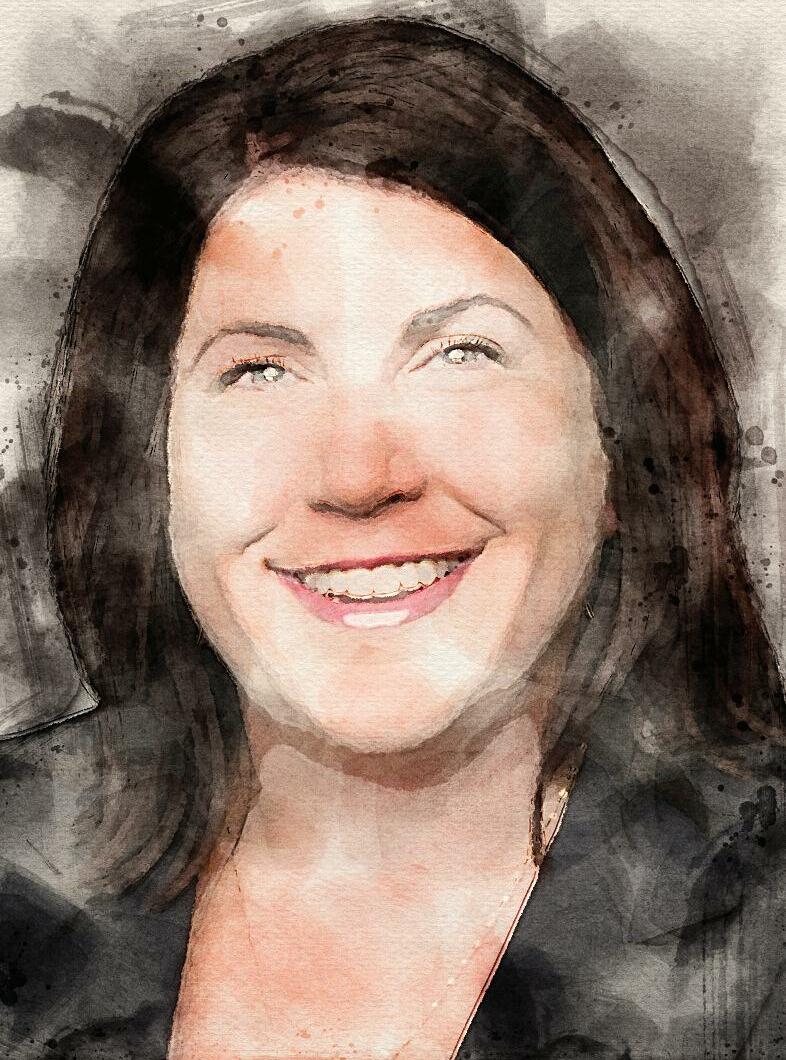
How do your personal passions play into your professional life?
While building a successful career, I found balance by marrying my love for coaching and mentoring with my love for softball I played softball and have now coached my daughters’ travel softball teams for the last 12 years Leading and inspiring teams to achieve their highest potential (professionally and personally) is a passion of mine
Your promotion puts you in charge of a huge team
How will you make an impact on it?
When I started my career in the public accounting profession, there were very few female leaders as role models I recognized early on in my career I wasn’t one of the guys and I didn’t need to pretend to be one My best bet was to just be myself and be authentic I’ve tried to carry that through the rest of my career as well
Part of being an authentic leader is talking about the real challenges the profession faces What are those?
In a world that is already amid a major change due to technological advancement, the business of accounting is evolving to meet the demands of a new, fast-paced culture Our clients expect us to stay two steps ahead of them and know where their industries are headed, how they can implement automation, deal with the war on talent, and identify opportunities to improve operational performance
The pace of change in our profession is both exciting and stressful Guiding our professionals through the change and getting them to think differently, embrace the technological changes, and stay ahead of the business risks within their respective industries is both a large ask and imperative But we are an ambitious, adaptable, and goal-oriented group As a firm, we are training our next generation on having a consultative mindset
What is one of the big initiatives you’re working on to prepare for the future as technology takes over more finance functions?
Wipfli is proud to be one of around 40 CPA firms that have collectively committed approximately $50 million to the AICPA-led Dynamic Audit Solution (DAS) initiative We’ve invested financial and human resources to developing this technologyenabled audit approach, putting us on the ground floor of the future It is likely that audit teams of the future will not only be staffed by CPAs or CPA-eligible candidates who have the common accounting and auditing skill sets of today With technology, our audits will be conducted differently perhaps by a team of those with GAAP/GAAS skill sets, technology-based skill sets, and data analytics expertise
Is there anything about the CPA profession you personally hope to influence given your growing reach?
A passion of mine is to make a positive impact on our profession by ensuring we are building inclusive and diverse teams and cultures, including supporting more women leaders Studies have shown that diverse teams and organizations are more successful
What insight do you have for peers seeking similar success as you?
Run to fires, not away
I N S I G H T S F R O M T H E P R O F E S S I O N ’ S I N F L U E N C E R S
52 | www icpas org/insight
S tay Smart
Get today’s must-have skills!

Conferences
May 5 Government Conference (Simulcast Only)
May 12 Employee Benefits Conference (Simulcast Only)

May 19 Estate, Gift & Trust Conference (Simulcast Only)
June 3 Advanced NFP Accounting and Uniform Guidance Conference (In-person & Simulcast)
June 4 Taxation on Real Estate Conference (In-person & Simulcast)
Courses
April 21 Critical Issues That CPAs in Industry Will Need to Face This Year (Simulcast Only)
April 21 Innovative Forecasting and Budgeting: Moving Beyond the Traditional Techniques (Simulcast Only)
May 7 Peer Review Forum
May 15
Succession Planning for the Small Business Owner: Finding the Exit Ramp (Simulcast Only)
May 15 Section 199A: Schedule K-1 Reporting by Relevant Passthrough Entities (Simulcast Only)
May 18 Required Minimum Distributions: Compliance and Planning (Simulcast Only)
May 18 Time Management & Personal Effectiveness Skills
May 18 Advanced Trust Issues: A Roadmap for Success in An Increasingly Complex Area (Simulcast Only)
May 28 Gift Tax Return Bootcamp on Steroids (This is Not “Basic Training” | In-person & Simulcast)
June 1 International Taxation (In-person & Simulcast)
June 2 Leases: Mastering the New FASB Requirement (In-person & Simulcast)
June 8 Audits of 401K Plans (In-person & Simulcast)
June 10 Core Communication Skills: Best Practice Interpersonal and Assertive Communication Skills
June 11 Form 990: Mastering Its Unique Characteristics (In-person & Simulcast)
June 15 Enterprise Risk Management Concepts and Strategy for Small and Medium-Sized Companies (Simulcast Only)
June 15 Situational Adaptability - Being Mindful: Adapting the Approach to Match the Shifting Demands of Different Situations
June 16 Critical Issues Facing Accounting Professionals in 2020 (In-person & Simulcast)
June 17 Business Valuation – A Practical Approach (In-person & Simulcast)
For a full listing of all upcoming education programs visit www.icpas.org/education
Special Events
July 9
Women's Mentoring Circles Open House
Aug. TBD YP Leadership Conference: Future Ready
Aug. 25-26 ICPAS SUMMIT20
Oct. 23
Women’s Leadership Forum: The Power of You
June 18 Project Management for Finance Professionals (Simulcast Only)
June 23 Details of the Tax Cuts and Jobs Act (Simulcast Only)
June 23 MS Excel: Database Analysis & Pivot Tables Made Easy
June 24 Annual Update: Top Governmental and NFP Accounting and Auditing Issues Facing CPAs (Carbondale)
June 24 Disclosure - The Key to Financial Statements (Simulcast Only)
June 25 Accounting and Reporting for Not-for-Profit Organizations (Carbondale)
June 29 Developing the Digital Mindset (Simulcast Only)
June 29 Essential Leadership Skills for Front Line Managers and Supervisors
June 29 Financial Forecasting: Planning for Success (Simulcast Only)
June 30 Risk, Cost, and Cash Management for Controllers and Financial Managers (Simulcast Only)
July 8 Multistate Tax Update (In-person & Simulcast)
July 9 Annual Tax Planning Guide for S Corporations, Partnerships, & LLCs (Naperville)

July 13 Construction Contractors: Accounting, Auditing and Tax (Simulcast Only)
July 13 Coaching and Counseling Skills: Having the Difficult & Crucial Conversations
July 14-15 Staff Training - Basic
July 14 Navigating Divorce - Tax and Litigation Issues (Simulcast Only)
July 16 Governmental and Not-for-Profit Annual Update (In-person & Simulcast)
July 16 Effective Presentation Skills: Delivering Presentations With Power, Persuasion and Impact
July 20
Leading and Managing Through Change
July 21 Ethics and Professional Conduct: Updates and Practical Applications (In-person & Simulcast)
EDUCATION | INFORMATION | ADVOCACY | CONNECTIONS
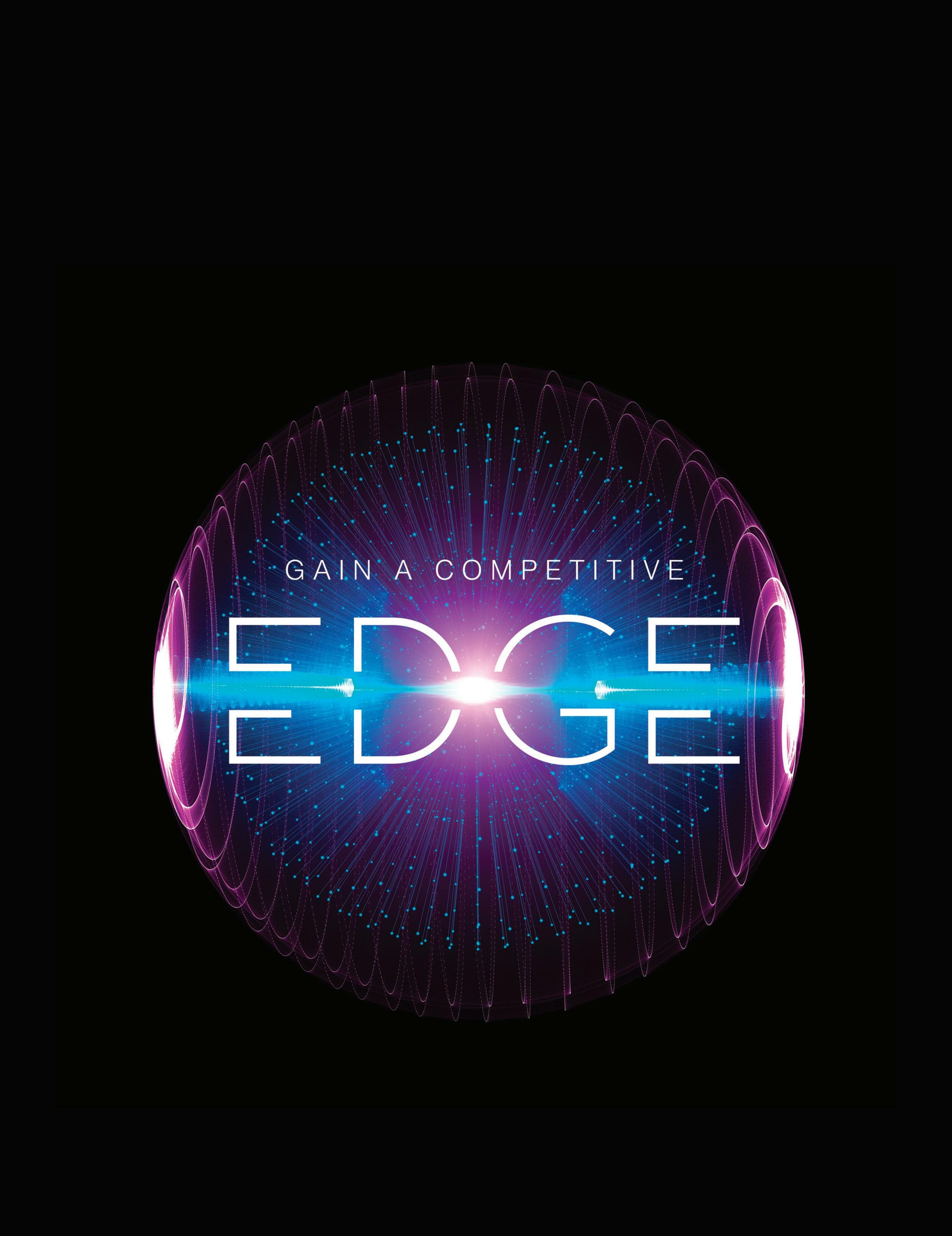
Simulcas t op tion available! Includes all Keynote Sessions and Tax U pdate Track and Technology Solutions Track sessions An incredible value! Get up to 16 CPE Hour s for only $350* Tuesday-Wednesday Augus t 25-26, 2020 Donald E. S tephens Convention Canter Rosemont, Illinois For more infor mation, visit www.icpas.org/summit *members


 By Dorri C McWhorter, CPA , CGMA , CITP, MBA
By Dorri C McWhorter, CPA , CGMA , CITP, MBA


 By Art Kuesel
By Art Kuesel




























 Leadership Fellow, National Association of Corporate Directors
Leadership Fellow, National Association of Corporate Directors











 BY JOANNA FU SIMEK , CPA , MST
BY JOANNA FU SIMEK , CPA , MST






